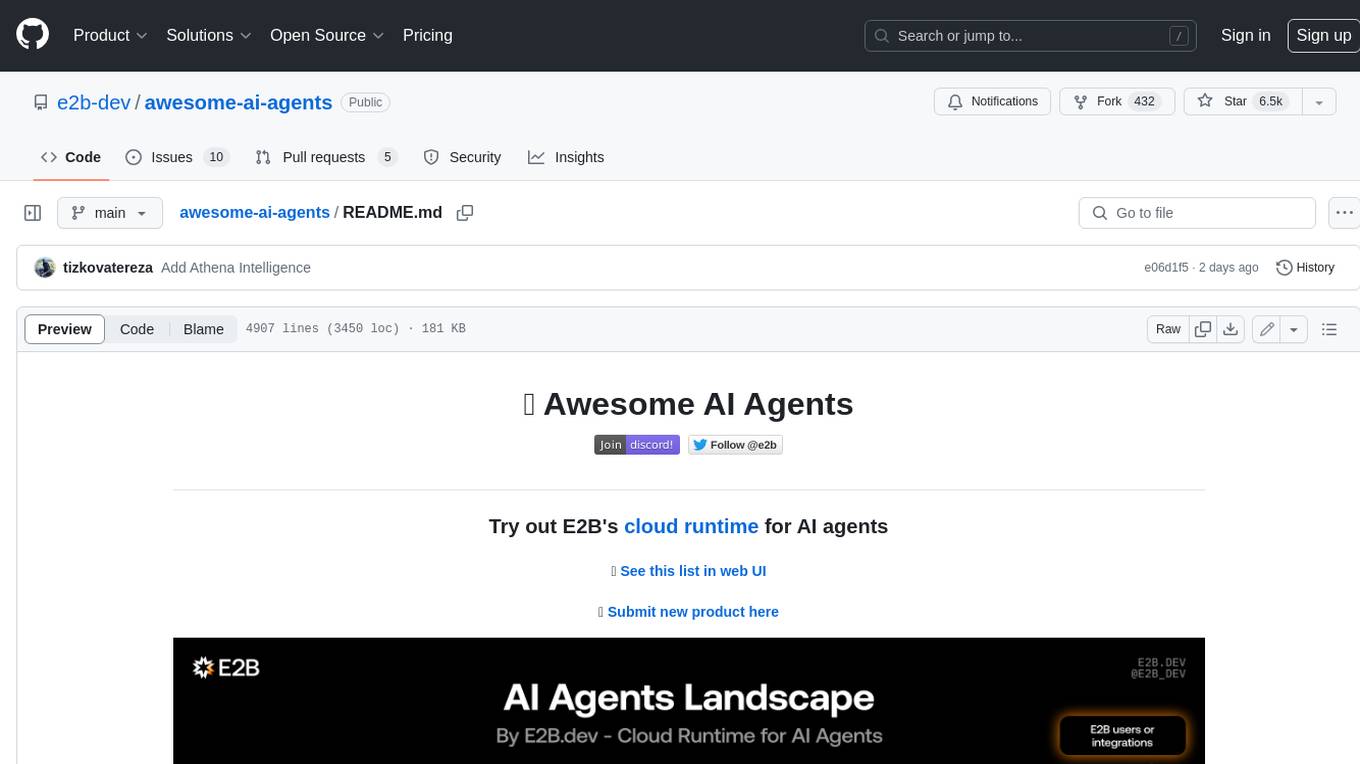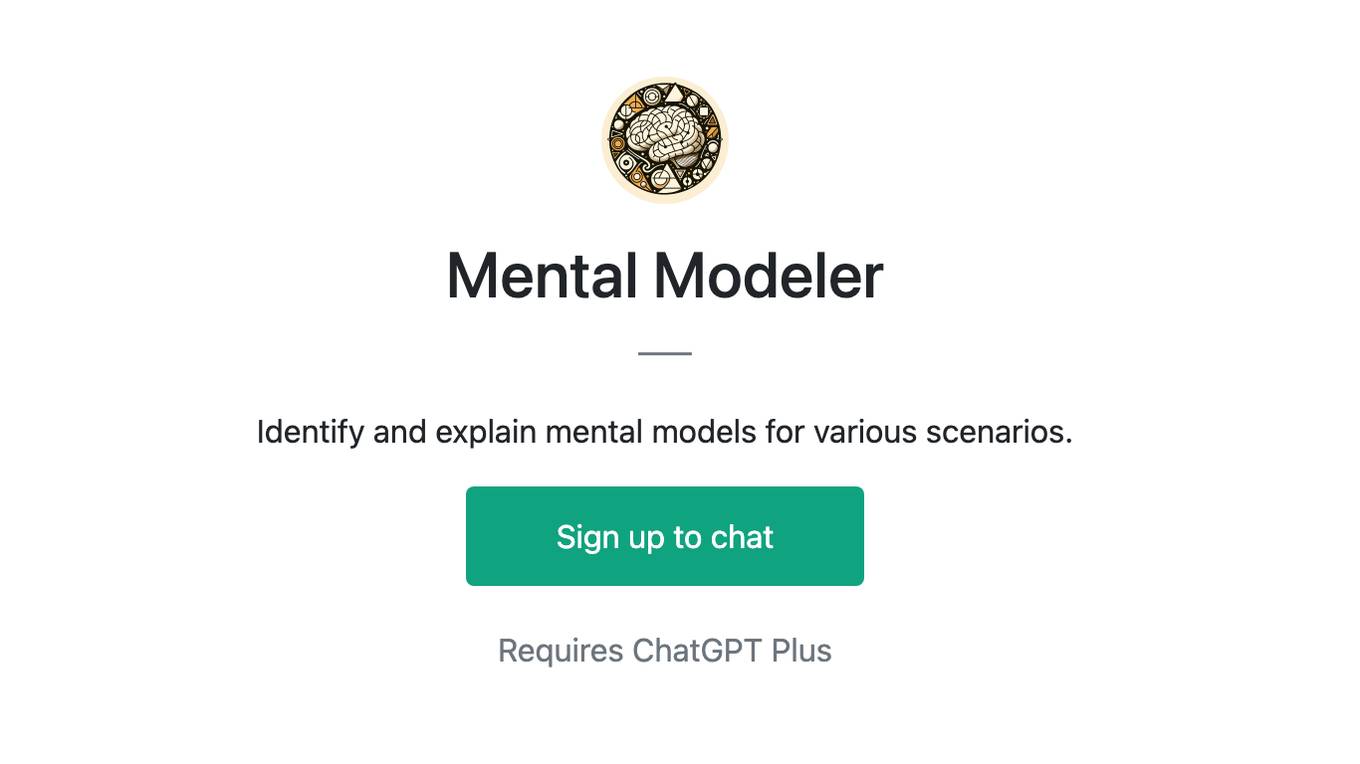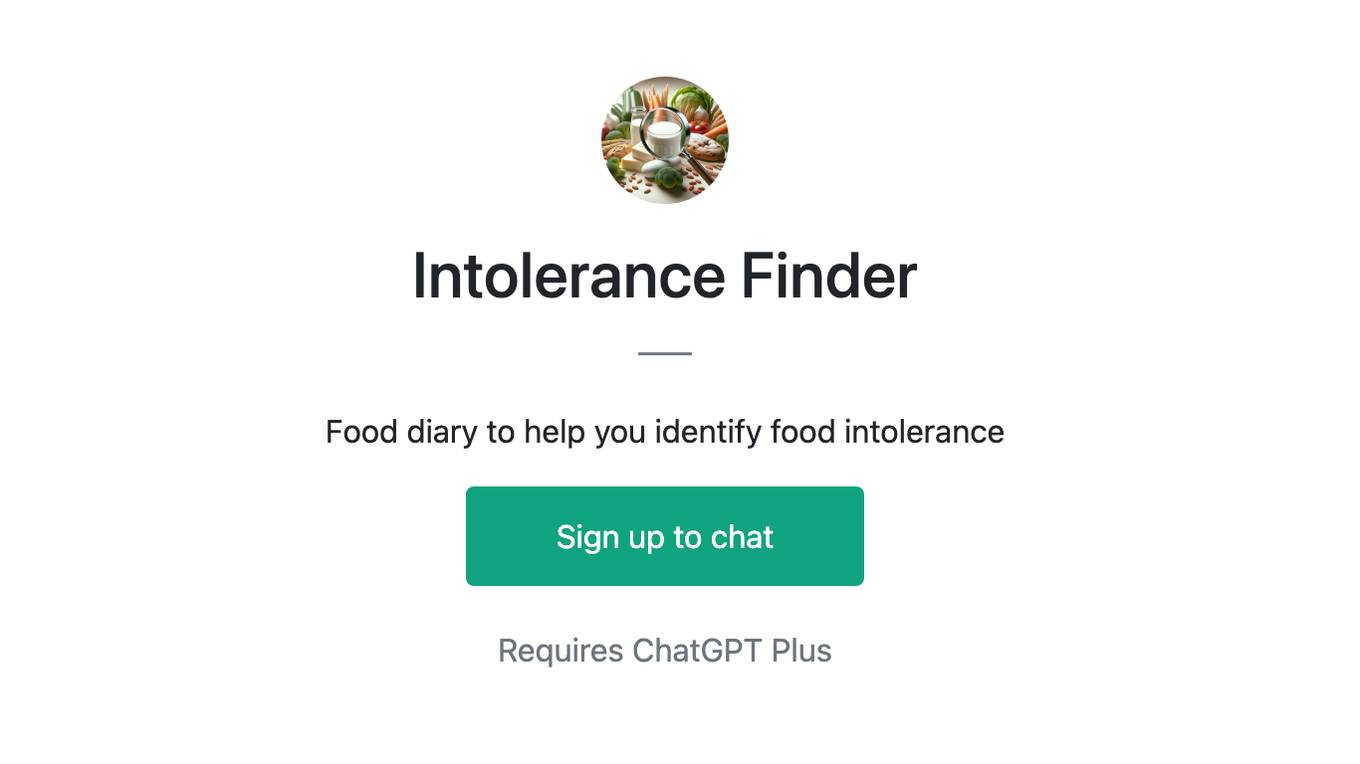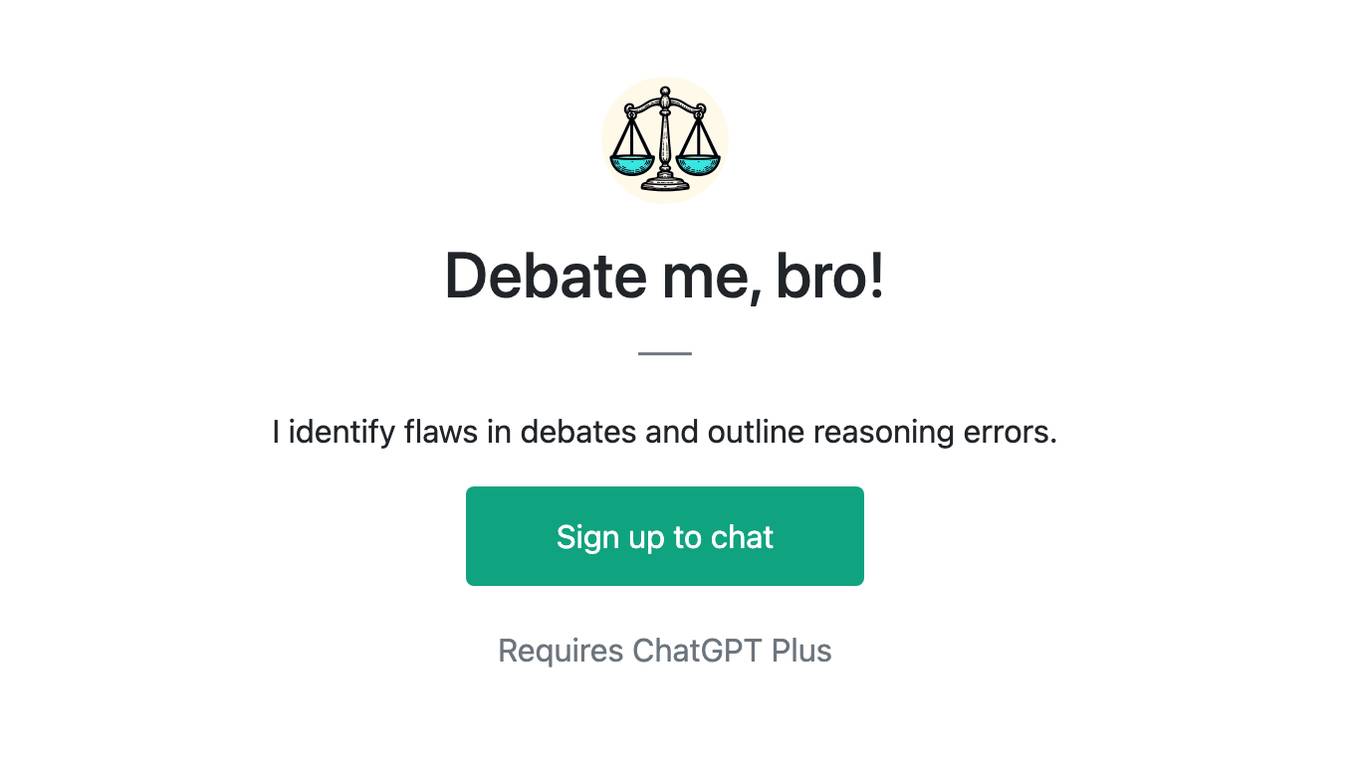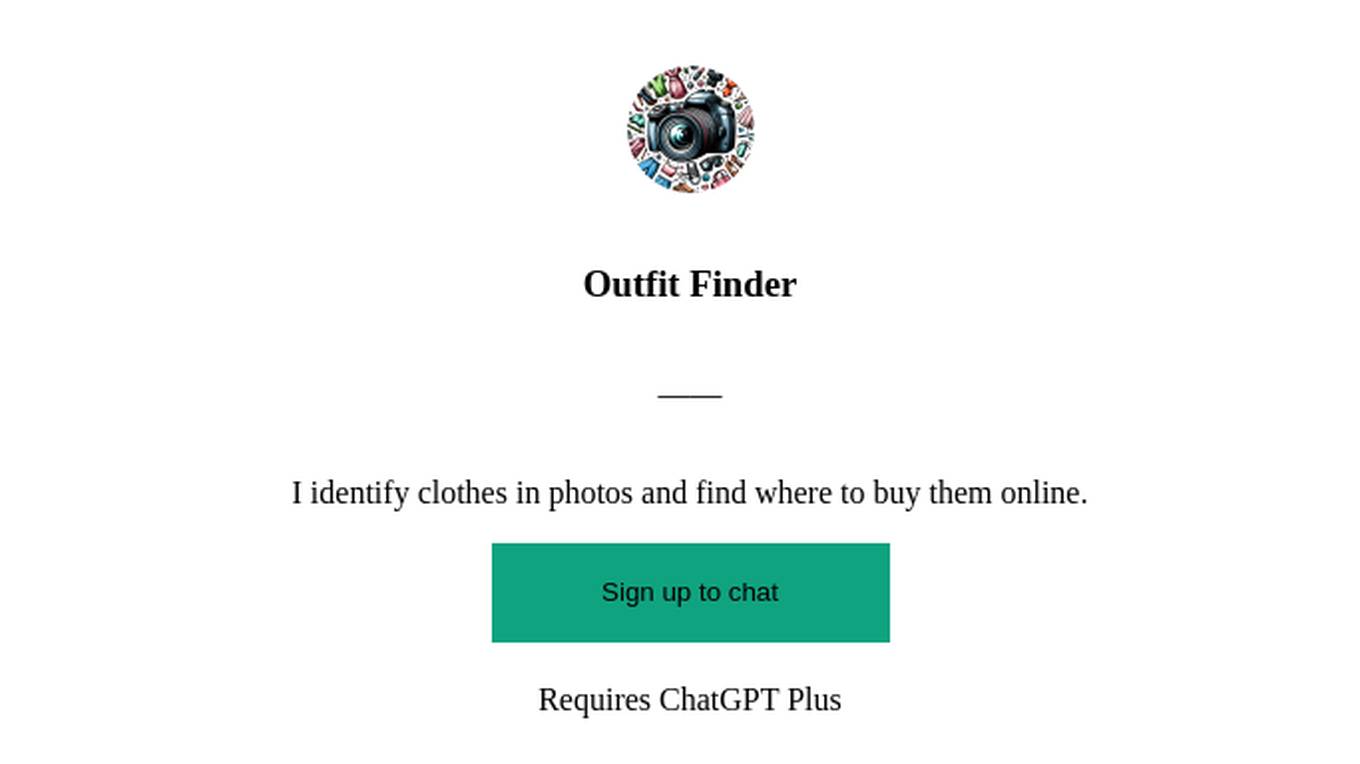Best AI tools for< Identify Distractions >
20 - AI tool Sites

TimeMaster
TimeMaster is an AI-powered productivity tool designed to help users supercharge their focus and productivity. It offers privacy-first tracking and insightful analytics to empower users to achieve more every day. The application provides features such as automatic time tracking, project detection, focus and distraction metrics, in-depth analysis, and a Pomodoro timer. TimeMaster helps users understand how they spend their time, identify distractions, build better work habits, and optimize their productivity. With a focus on data security and user privacy, TimeMaster ensures that all data is stored locally and encrypted for protection.

Pl@ntNet
Pl@ntNet is a citizen science project available as an application that helps you identify plants from your photos. It is a collaborative project that brings together scientists, naturalists, and citizens from all over the world to collect and share data on plant diversity. The app uses artificial intelligence to identify plants from photos, and the data collected is used to create a global database of plant diversity. Pl@ntNet is free to use and is available in over 20 languages.
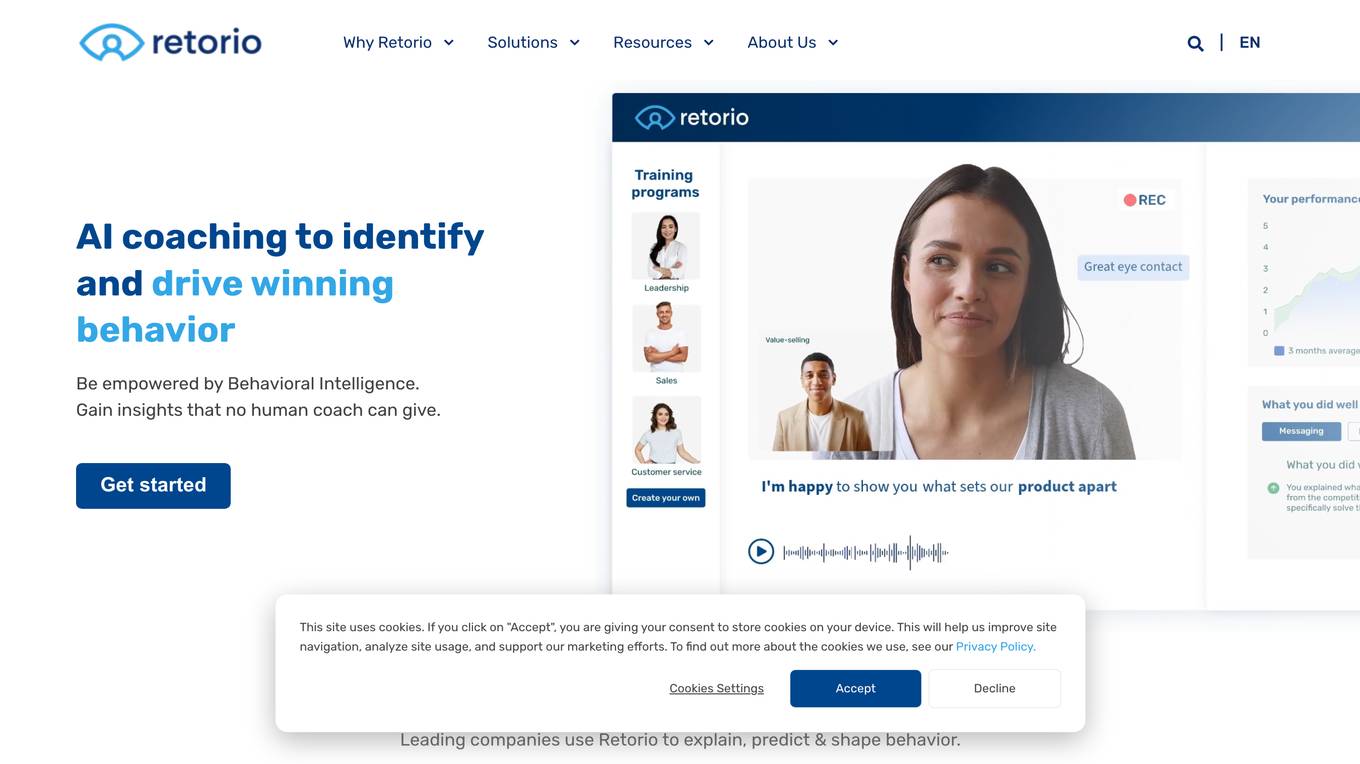
Retorio
Retorio is a cutting-edge Behavioral Intelligence (BI) Platform that fuses machine learning with scientific findings from psychology and organizational research to ultimately take learning and development to a new level within organizations. At the core of Retorio’s capabilities are its AI-powered immersive video simulations. Through these engaging role-plays, learners using Retorio get to train and develop the necessary skills through realistic scenarios. Furthermore, the personalized, on-demand feedback learners receive allows for immediate behavior change and performance improvement. Retorio’s training platform transcends the limitation of scalability and redefines how individuals and teams train and develop, bringing talent development to a new dimension.
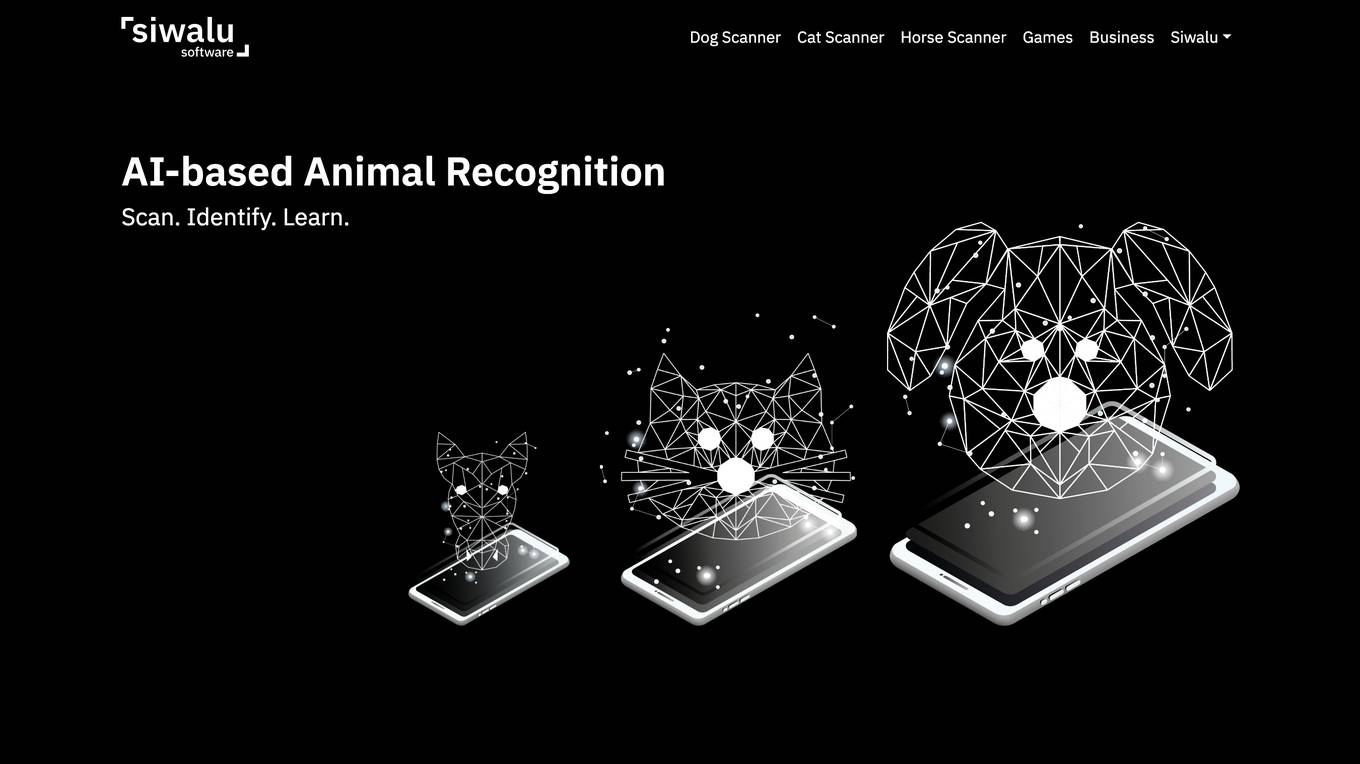
Siwalu
Siwalu is an AI-based image recognition tool that specializes in identifying animals. The website offers apps that provide specific information about the characteristics and traits of pets, helping pet owners determine the breed of their pets quickly and accurately. By using advanced AI technology, Siwalu aims to increase knowledge about global biodiversity by focusing on animal recognition for dogs, cats, and horses. The apps have garnered millions of downloads and are praised for their accuracy and user-friendly interface.
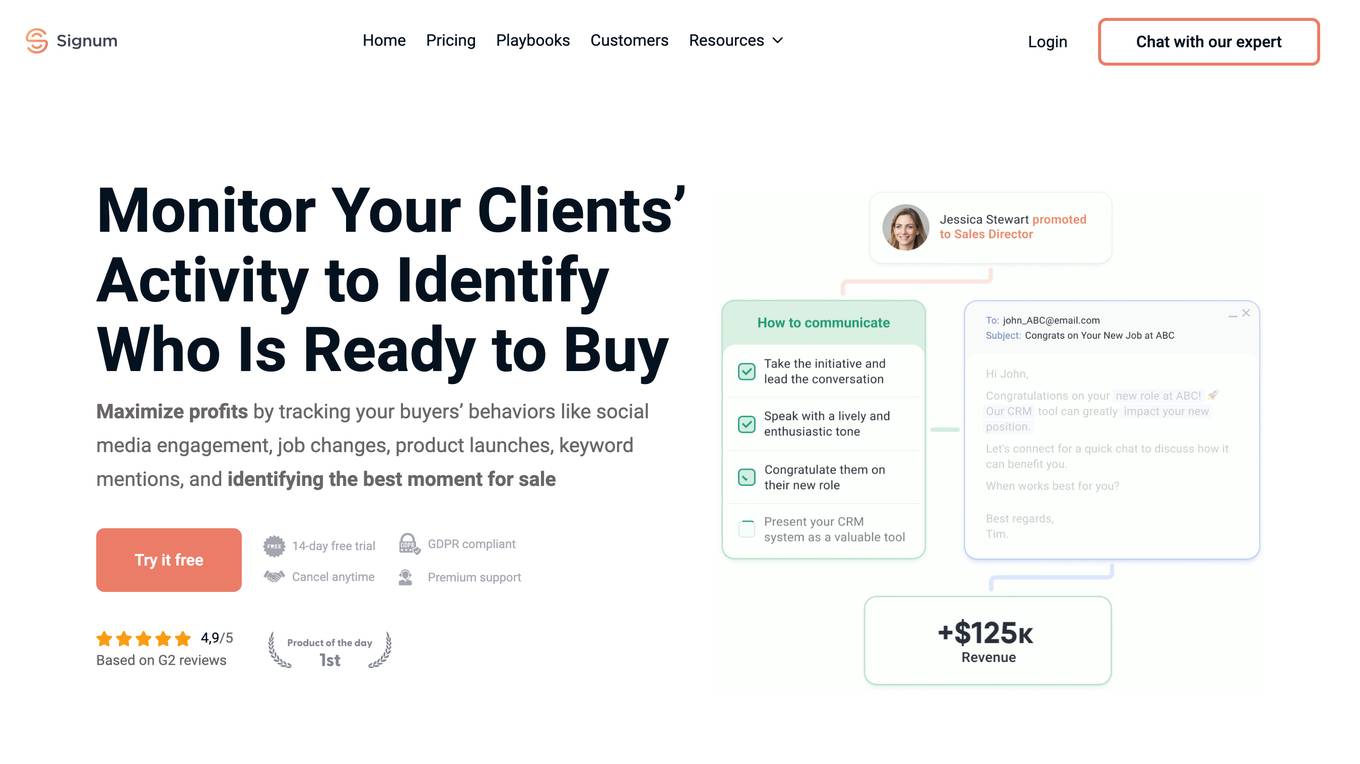
Signum.AI
Signum.AI is a sales intelligence platform that uses artificial intelligence (AI) to help businesses identify customers who are ready to buy. The platform tracks key customer behaviors, such as social media engagement, job changes, product launches, and keyword mentions, to identify the best time to reach out to them. Signum.AI also provides personalized recommendations on how to approach each customer, based on their individual needs and interests.
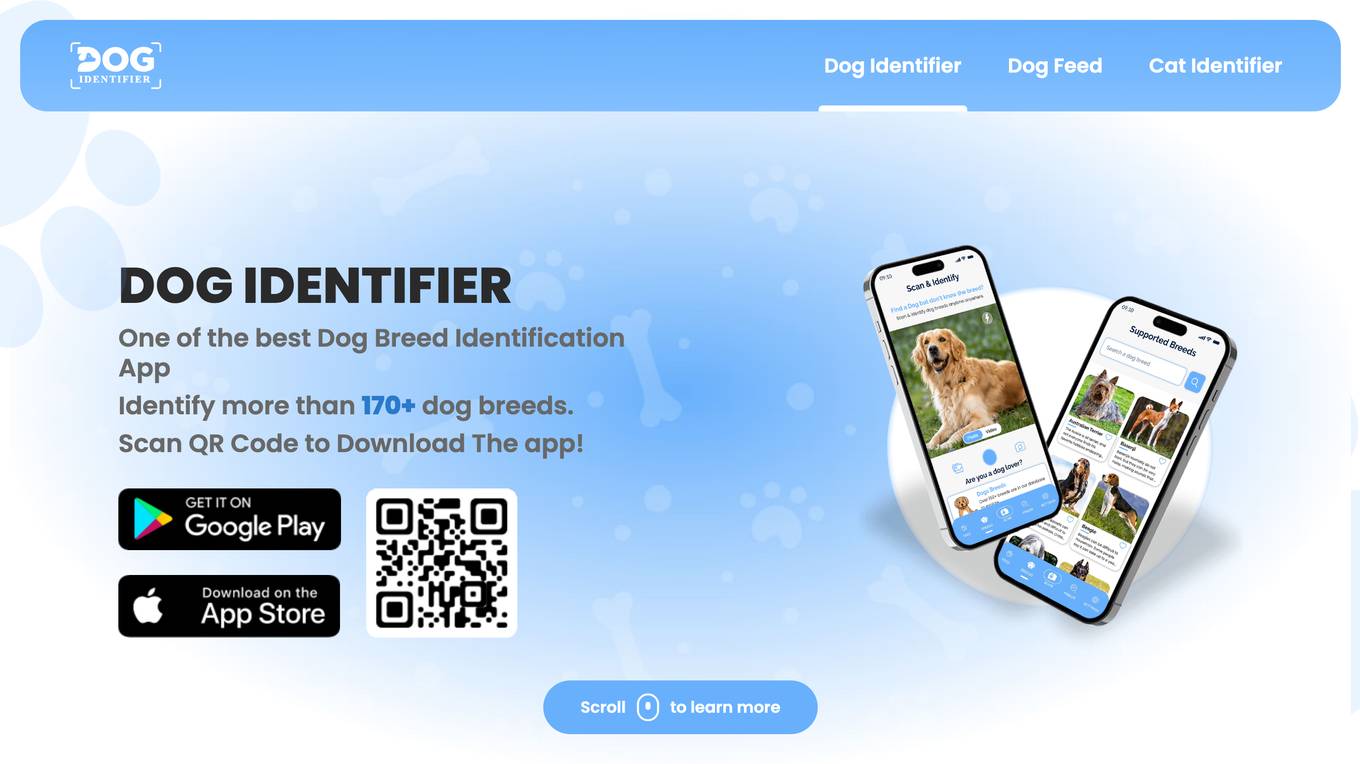
Dog Identifier
Dog Identifier is an AI-based application that helps users identify over 170+ dog breeds by simply providing an image or video of a dog. The app predicts the breed of the dog and provides detailed information about characteristics, temperament, and history of the breed. Users can also search for their ideal furry companion by answering a few lifestyle-related questions. Additionally, the app features a comprehensive database of dog breeds, daily fun facts, and a new Dog Mood Detection feature that analyzes a dog's facial expressions and body language to suggest their mood.
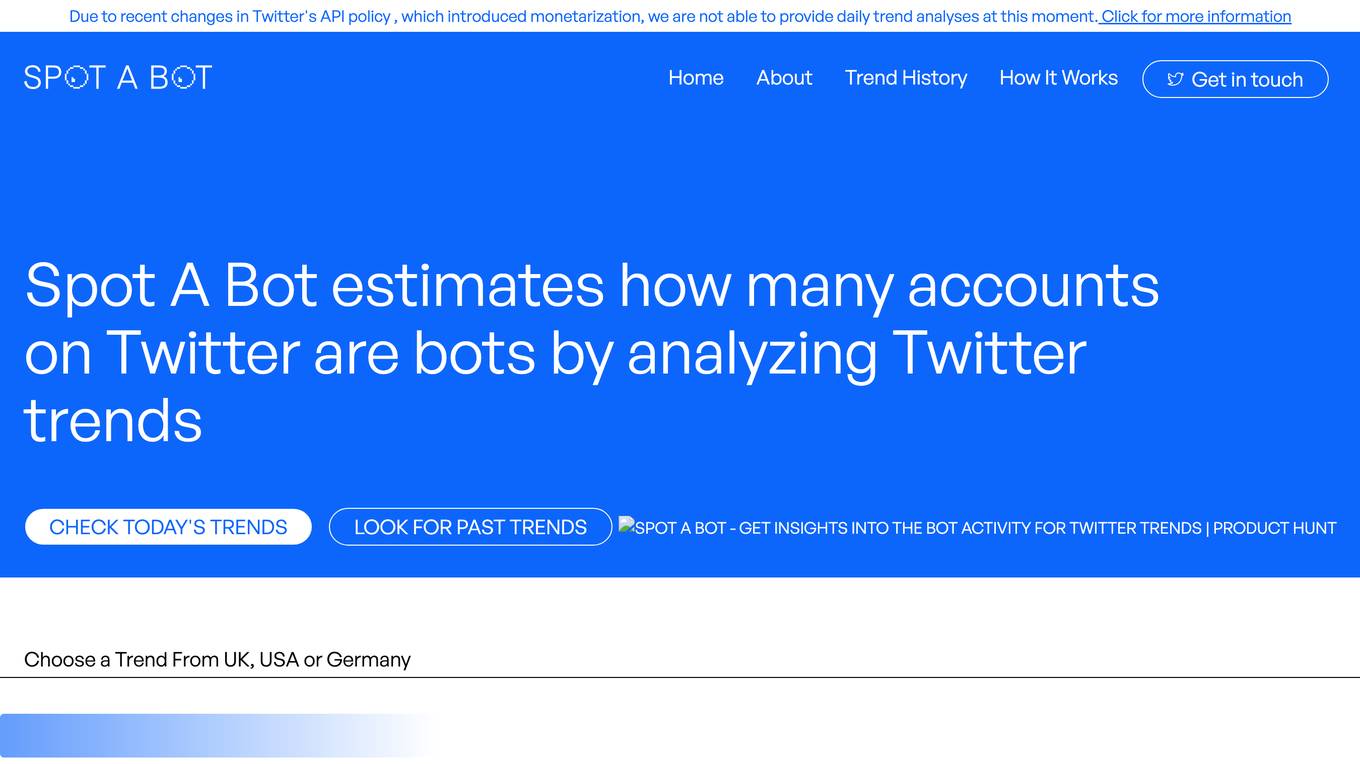
Spot a Bot
Spot a Bot is an AI tool that estimates the number of bot accounts on Twitter by analyzing Twitter trends. Due to recent changes in Twitter's API policy, the tool is unable to provide daily trend analyses at the moment. Users can check today's trends, look for past trends, and choose trends from the UK, USA, or Germany. The tool boasts a model accuracy of 11% and has analyzed a total of 3,871 accounts and 158,540 tweets. Spot a Bot aims to help users identify and understand the prevalence of bot accounts on Twitter.

NeuProScan
NeuProScan is an AI platform designed for the early detection of pre-clinical Alzheimer's from MRI scans. It utilizes AI technology to predict the likelihood of developing Alzheimer's years in advance, helping doctors improve diagnosis accuracy and optimize the use of costly PET scans. The platform is fully customizable, user-friendly, and can be run on devices or in the cloud. NeuProScan aims to provide patients and healthcare systems with valuable insights for better planning and decision-making.
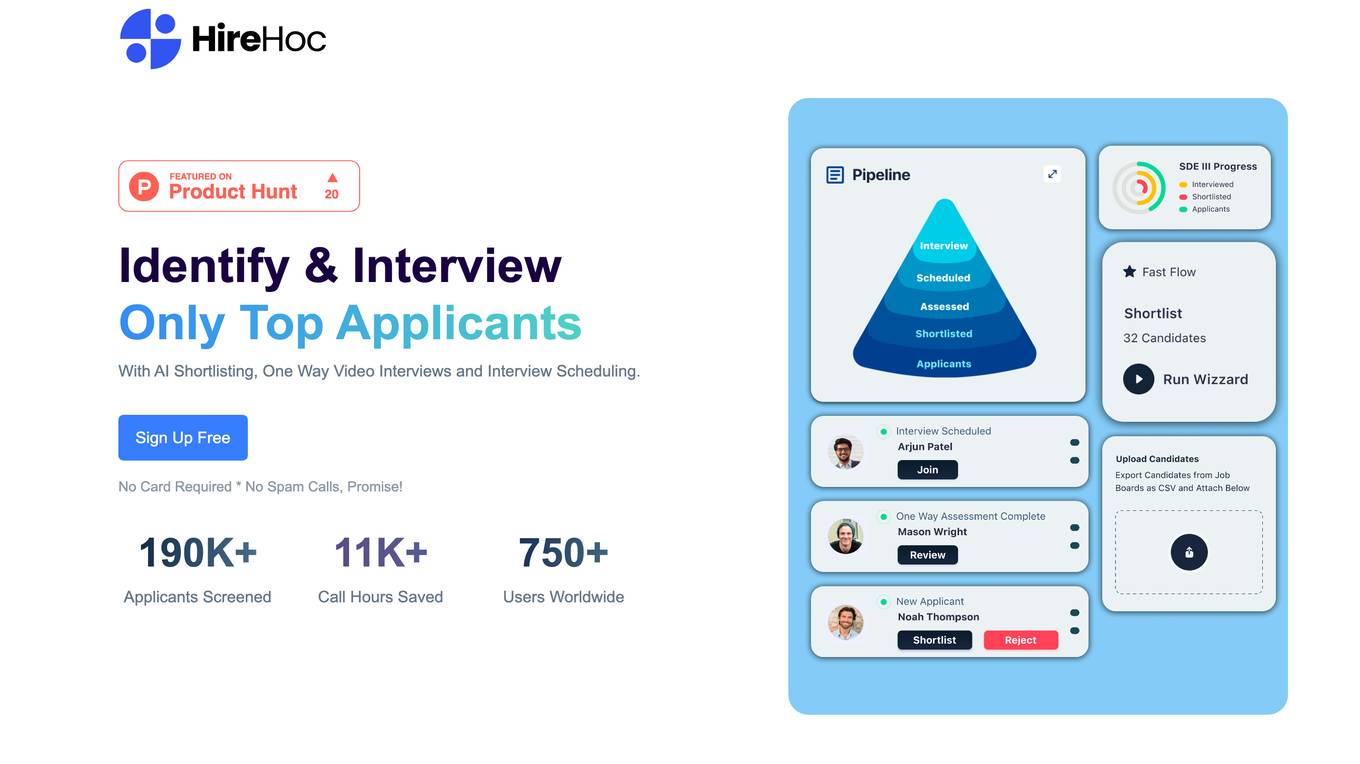
Hire Hoc
Hire Hoc is an AI-powered hiring tool that helps businesses identify and interview only the top applicants. With features like AI shortlisting, one-way video interviews, and interview scheduling, Hire Hoc can help you streamline your hiring process and make better hiring decisions.
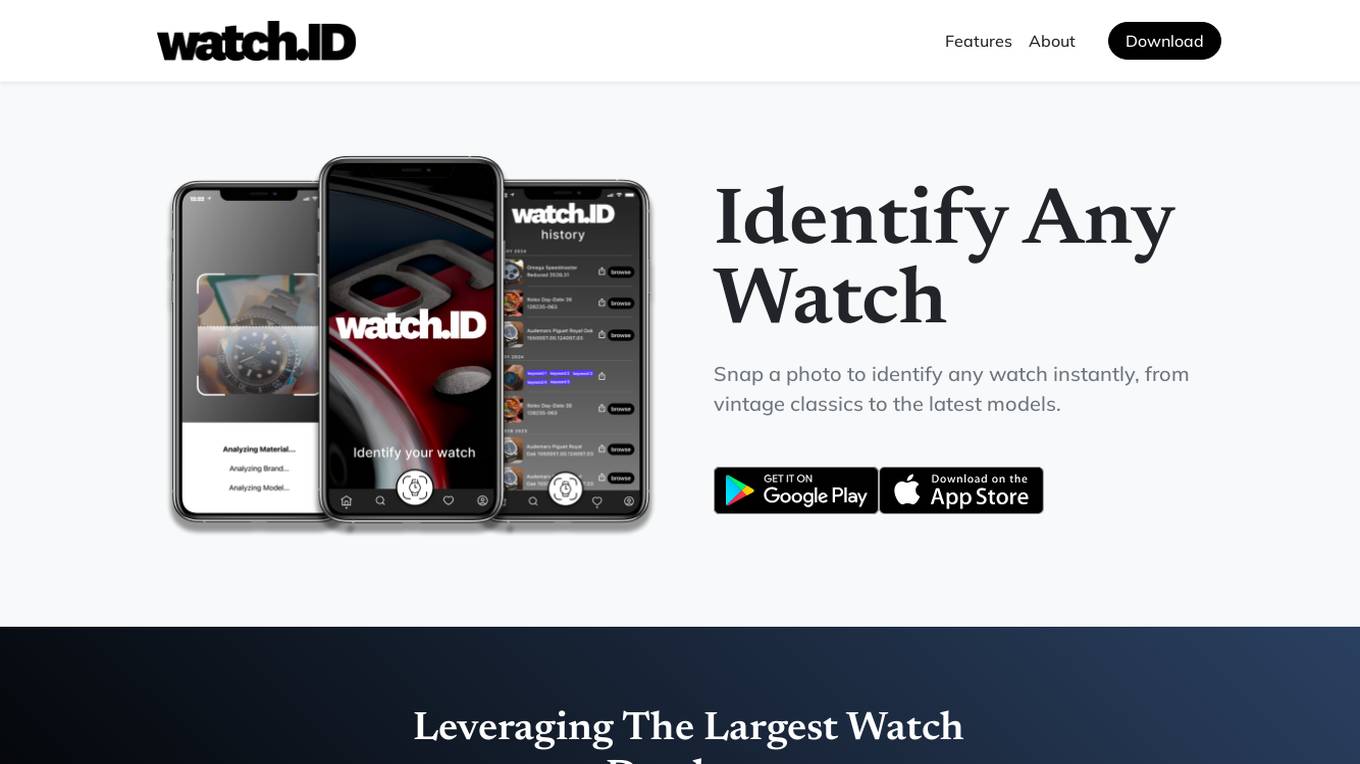
watchID
watchID is an AI-powered tool that allows users to identify any watch instantly by simply snapping a photo. It leverages the largest watch database to provide comprehensive information about the watch, including its story, reference number, and where to acquire it. watchID also offers a marketplace where users can browse and purchase watches from various sellers. Additionally, it fosters a community of watch enthusiasts where users can share discoveries, get insights, and connect with fellow enthusiasts.
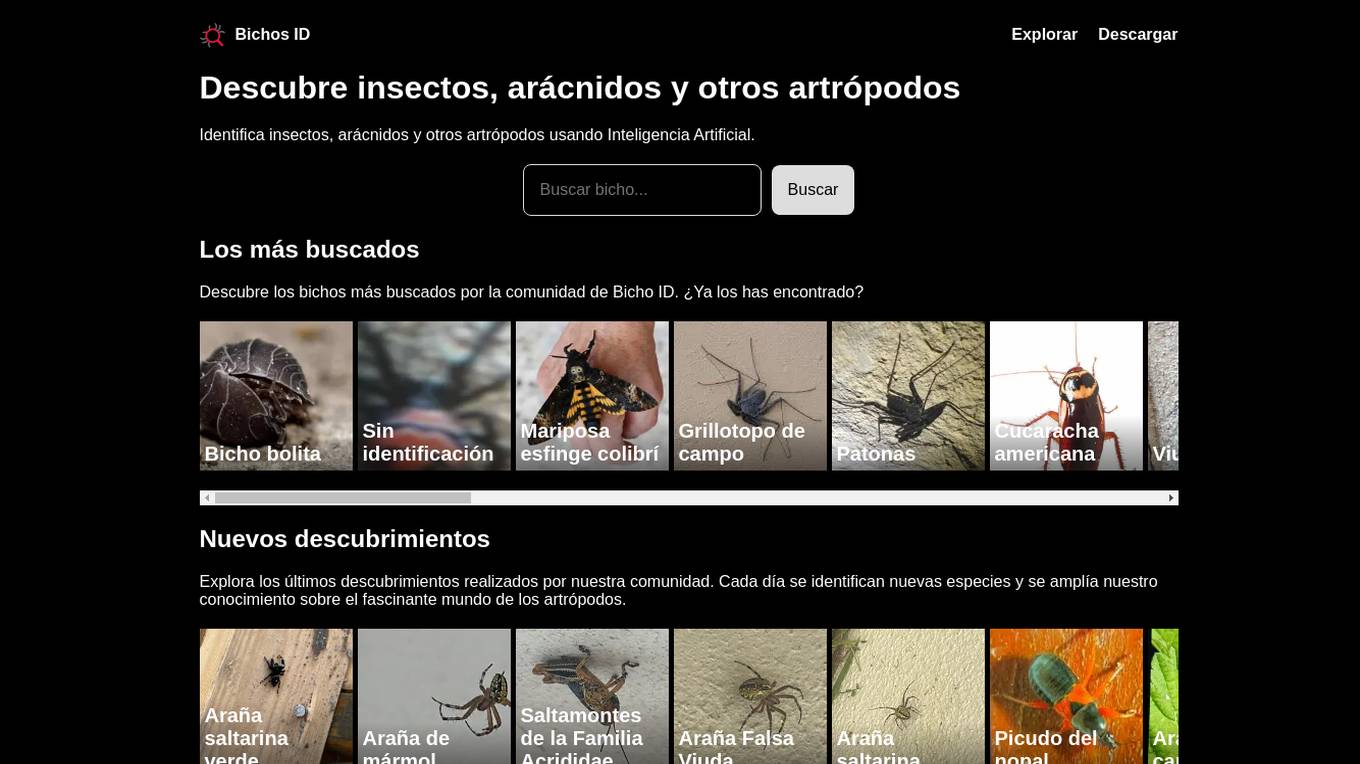
Bichos ID de Fucesa
Bichos ID de Fucesa is an AI tool that allows users to explore and identify insects, arachnids, and other arthropods using artificial intelligence. Users can discover the most searched bugs, explore new discoveries made by the community, and view curated organisms. The platform aims to expand knowledge about the fascinating world of arthropods through AI-powered identification.
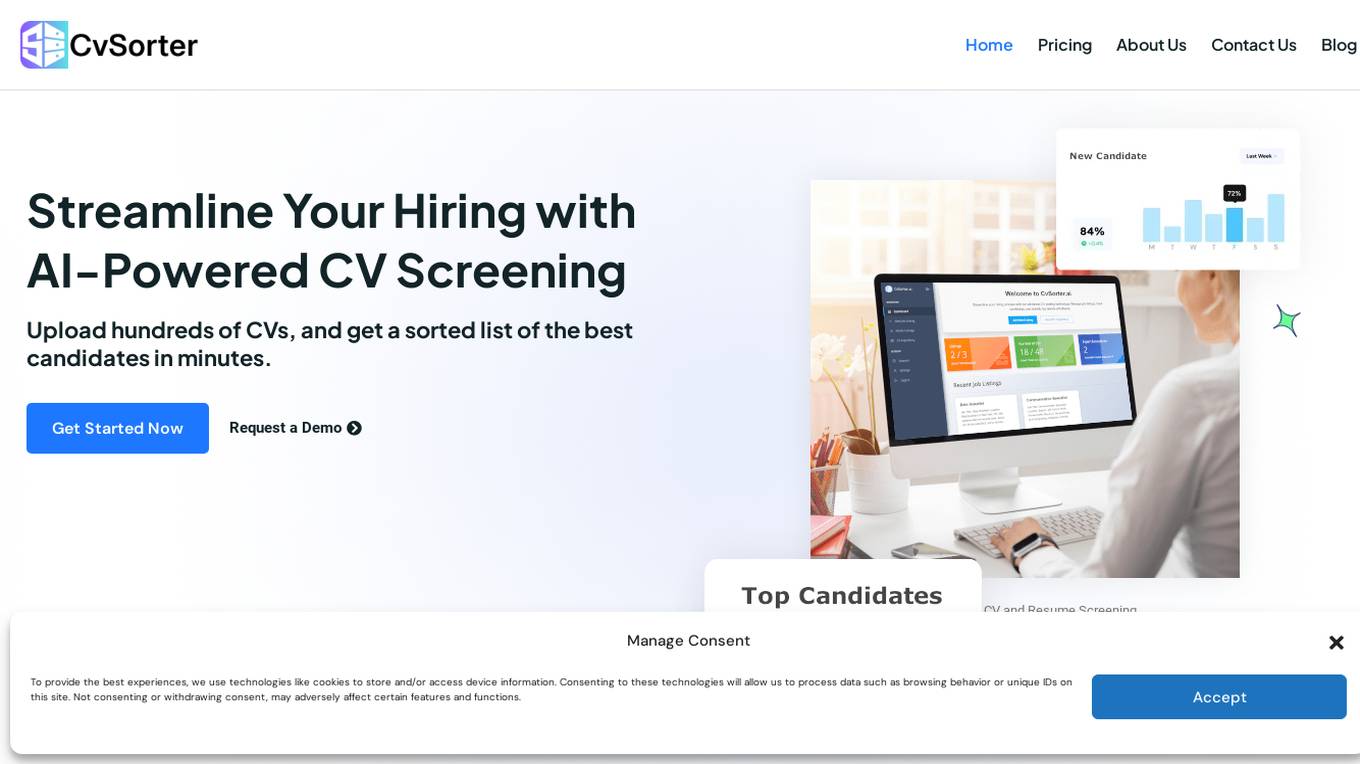
CvSorter
CvSorter is an AI-powered CV and resume screening tool that streamlines the hiring process by automating screening, improving accuracy, and saving time. It allows users to upload job descriptions and candidate CVs to identify top talent efficiently. With customizable criteria and detailed reporting, CvSorter enhances recruitment workflow by focusing on identifying the best candidates quickly and accurately.
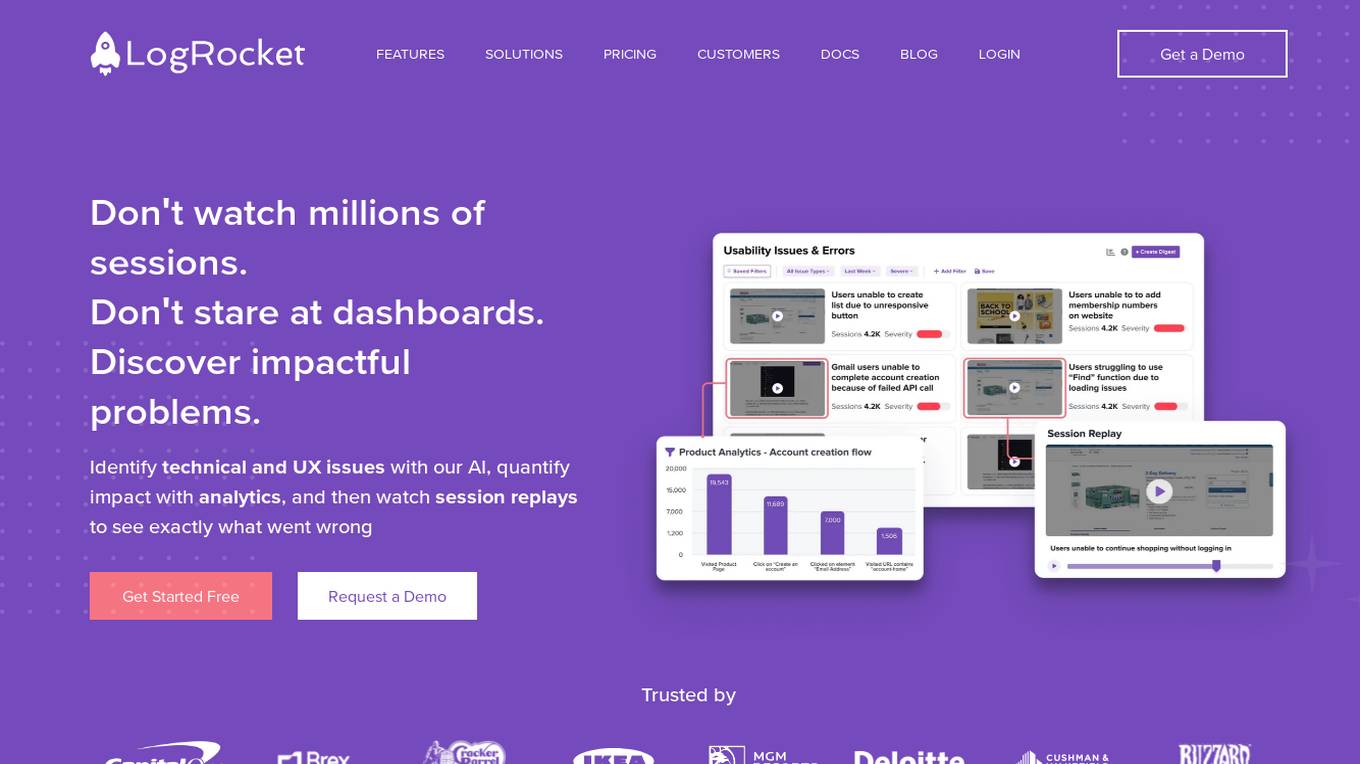
LogRocket
LogRocket is a session replay, product analytics, and issue detection platform that helps software teams deliver the best web and mobile experiences. With LogRocket, you can see exactly what users experienced on your app, as well as DOM playback, console and network logs, errors, and performance data. You can also surface the most impactful user issues with JavaScript errors, network errors, stack traces, automatic triaging, and alerting. LogRocket also provides product analytics to help you understand how users are interacting with your app, and UX analytics to help you visualize how users experience your app at both the individual and aggregate level.
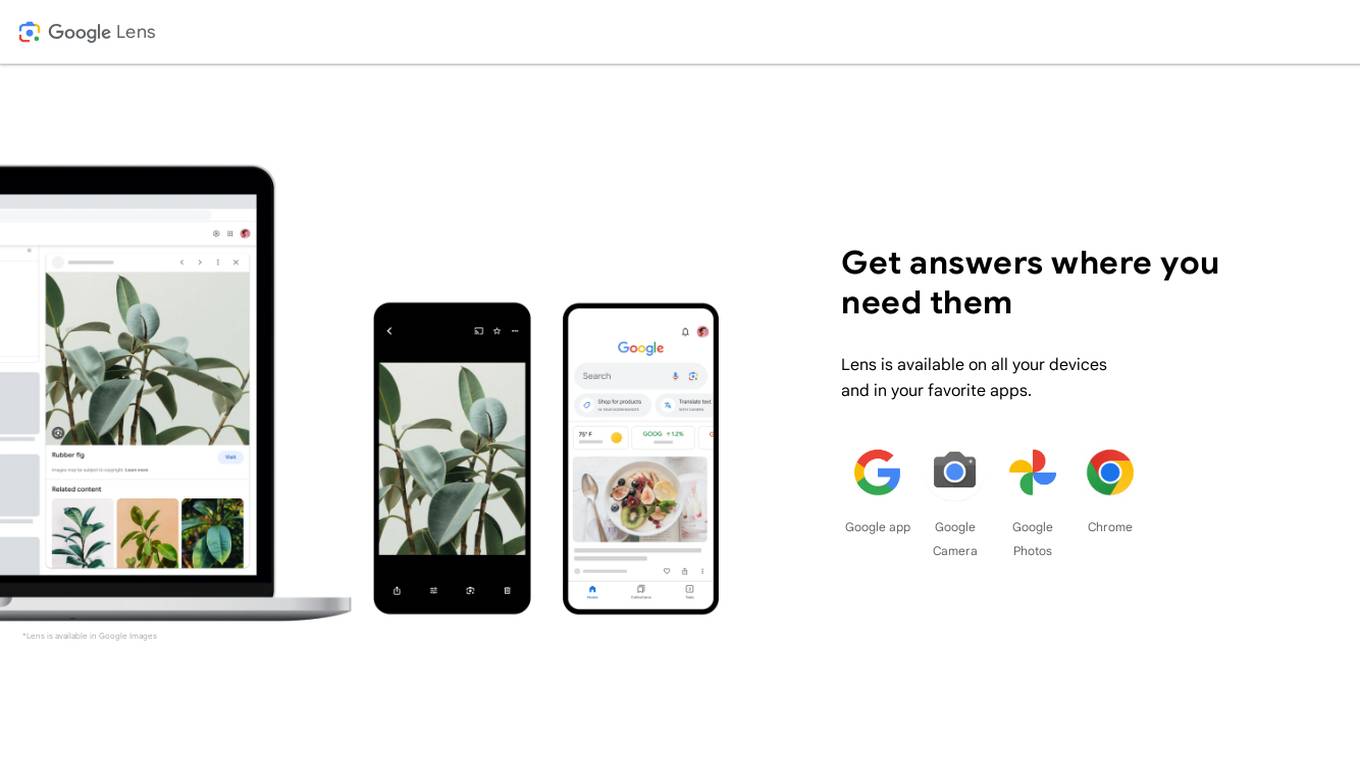
Google Lens
Google Lens is an AI-powered visual search tool developed by Google that allows users to search, shop, translate, and identify objects using their camera or images. With Google Lens, users can find similar clothes, furniture, and home decor, translate text in real-time from over 100 languages, get step-by-step homework help for various subjects, and identify plants and animals. The application is available on all devices and in various Google apps, making it convenient for users to access its features anytime, anywhere.
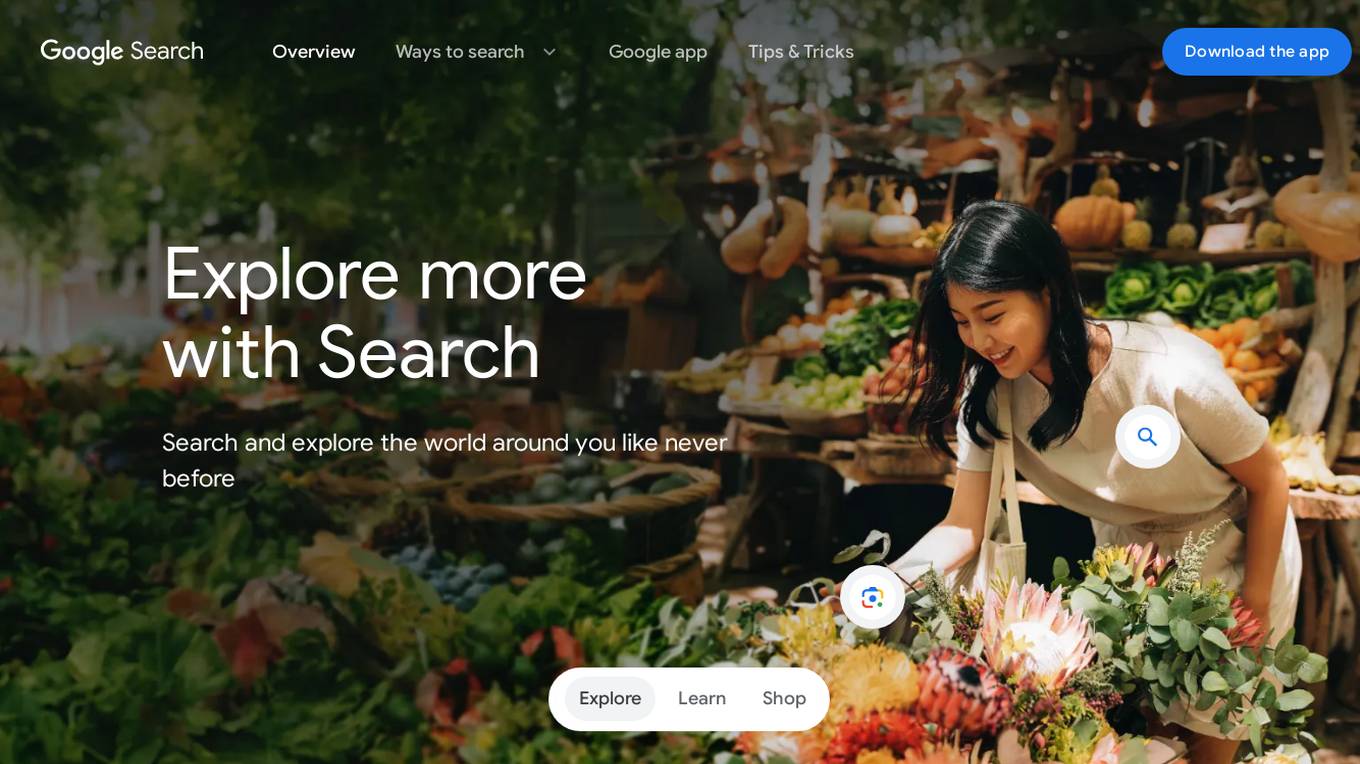
Google Lens
The website is an AI tool called Google Lens that allows users to search, discover, and explore the world around them using AI-powered technology. Users can identify plants, search for information, shop, translate text, find songs, and more by simply using their camera or voice. Google Lens provides detailed overviews, helps with homework, and offers a unique way to interact with the environment through augmented reality. With 25 years of search history, Google Lens continues to innovate and inspire users worldwide.
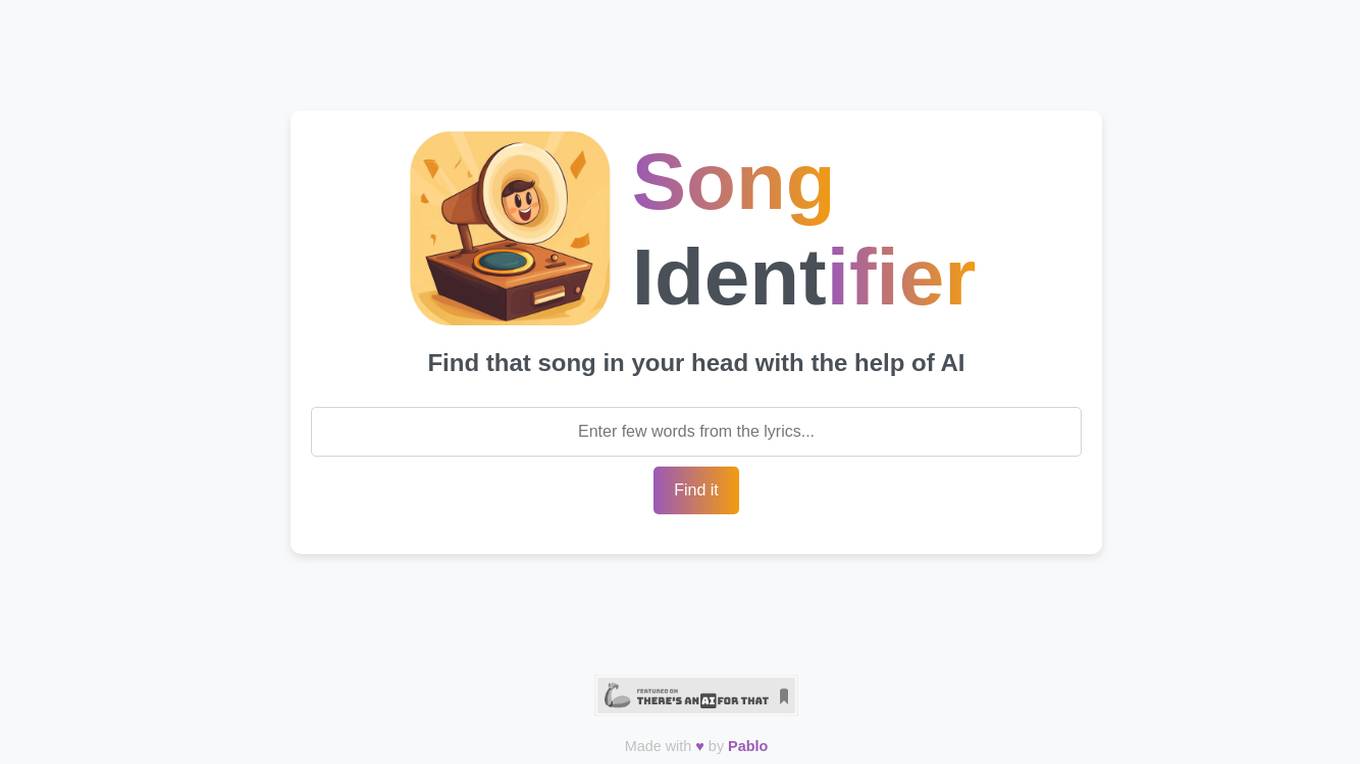
Song Identifier
Song Identifier is an AI tool that helps users find a song by entering words from the lyrics. The tool utilizes AI technology to match the input lyrics with a vast database of songs, providing users with accurate results. Created with love by Pablo, Song Identifier aims to assist users in identifying songs stuck in their heads quickly and effortlessly.
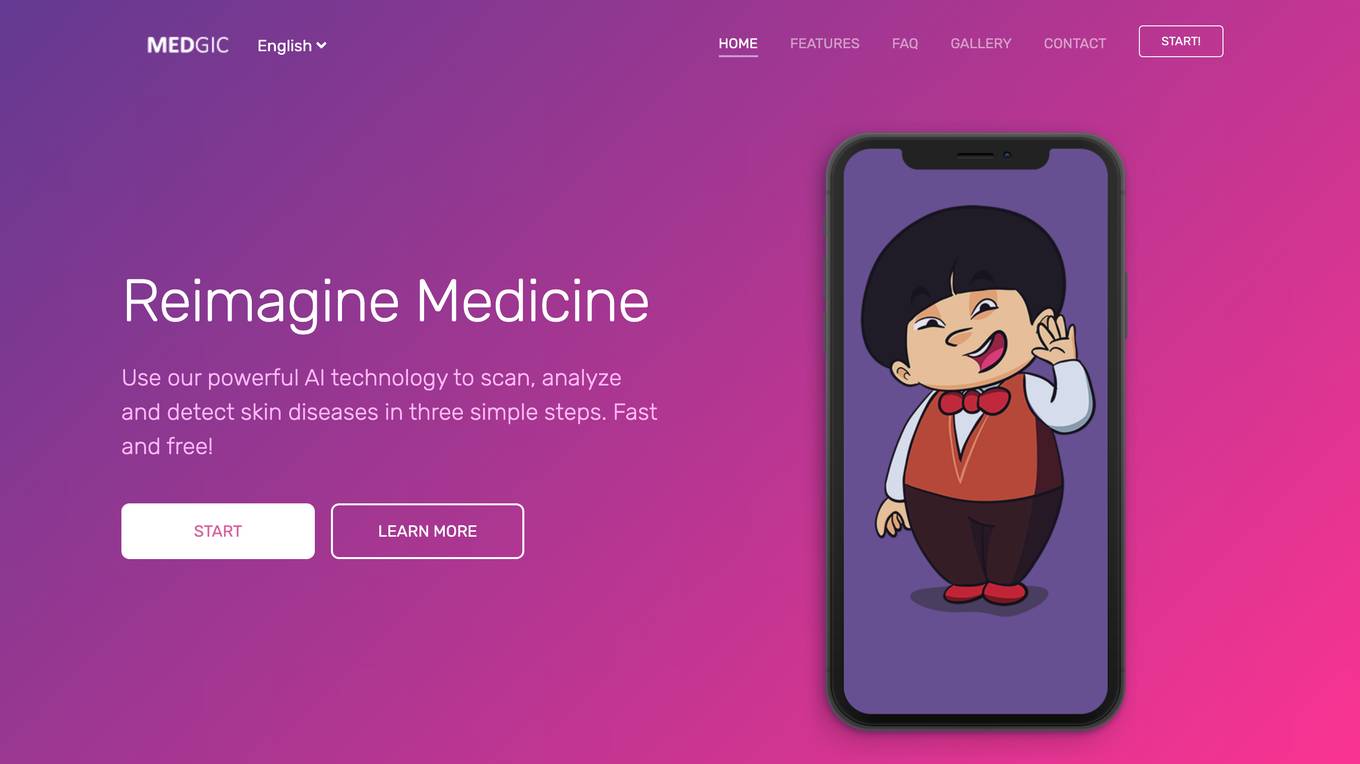
Medgic
Medgic is an advanced AI tool designed to scan, analyze, and detect skin problems using powerful AI technology. Users can simply take a photo of their skin condition, and Medgic provides results along with friendly advice. The AI robot aims to reimagine medicine by continuously learning and evolving to contribute towards solving global healthcare challenges. It is available for free on all devices and offers general information for educational purposes only, not as a replacement for physician consultation.
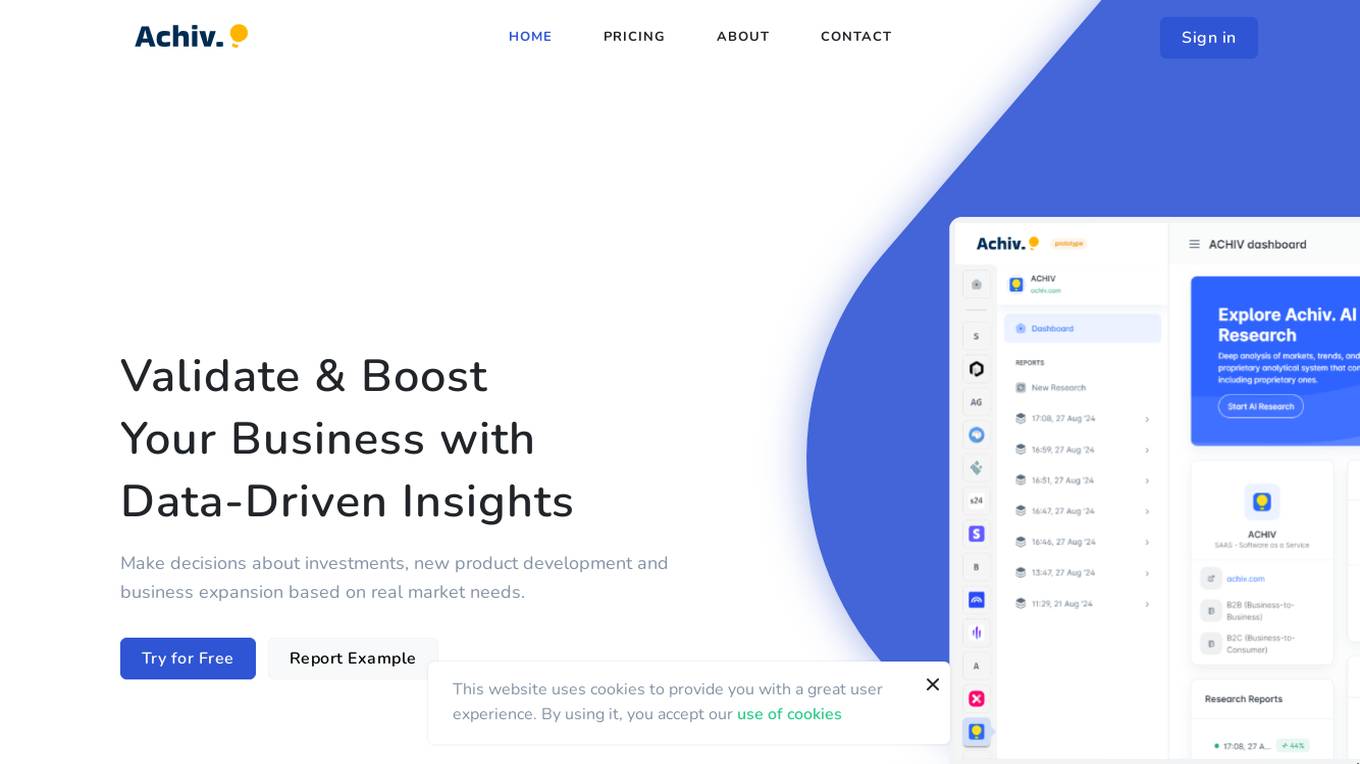
ACHIV
ACHIV is an AI tool for ideas validation and market research. It helps businesses make informed decisions based on real market needs by providing data-driven insights. The tool streamlines the market validation process, allowing quick adaptation and refinement of product development strategies. ACHIV offers a revolutionary approach to data collection and preprocessing, along with proprietary AI models for smart analysis and predictive forecasting. It is designed to assist entrepreneurs in understanding market gaps, exploring competitors, and enhancing investment decisions with real-time data.

TechTarget
TechTarget is a leading provider of purchase intent data and marketing services for the technology industry. Our data-driven solutions enable technology companies to identify and engage with their target audiences, and to measure the impact of their marketing campaigns. We offer a range of products and services, including:

Font Finder
Font Finder by What Font Is is an AI-powered tool that allows users to identify any font from any image, whether commercial or free. Users can upload an image, and the tool will match it with over 990K+ fonts, providing both commercial and free options. The tool then displays more than 60 similar fonts for users to explore. Font Finder aims to help users easily search for specific fonts, regardless of the publisher, producer, or foundry, making font identification a seamless process.
20 - Open Source AI Tools

LLM-PowerHouse-A-Curated-Guide-for-Large-Language-Models-with-Custom-Training-and-Inferencing
LLM-PowerHouse is a comprehensive and curated guide designed to empower developers, researchers, and enthusiasts to harness the true capabilities of Large Language Models (LLMs) and build intelligent applications that push the boundaries of natural language understanding. This GitHub repository provides in-depth articles, codebase mastery, LLM PlayLab, and resources for cost analysis and network visualization. It covers various aspects of LLMs, including NLP, models, training, evaluation metrics, open LLMs, and more. The repository also includes a collection of code examples and tutorials to help users build and deploy LLM-based applications.
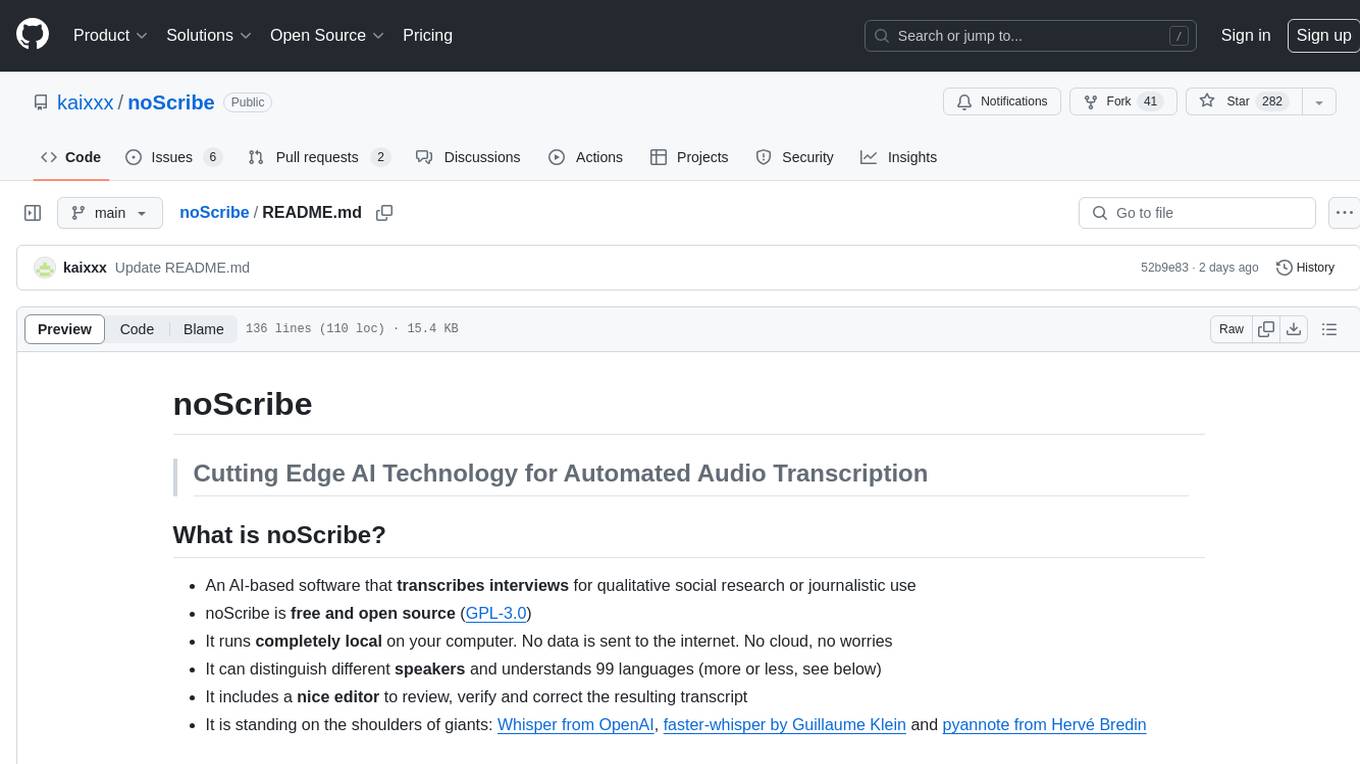
noScribe
noScribe is an AI-based software designed for automated audio transcription, specifically tailored for transcribing interviews for qualitative social research or journalistic purposes. It is a free and open-source tool that runs locally on the user's computer, ensuring data privacy. The software can differentiate between speakers and supports transcription in 99 languages. It includes a user-friendly editor for reviewing and correcting transcripts. Developed by Kai Dröge, a PhD in sociology with a background in computer science, noScribe aims to streamline the transcription process and enhance the efficiency of qualitative analysis.
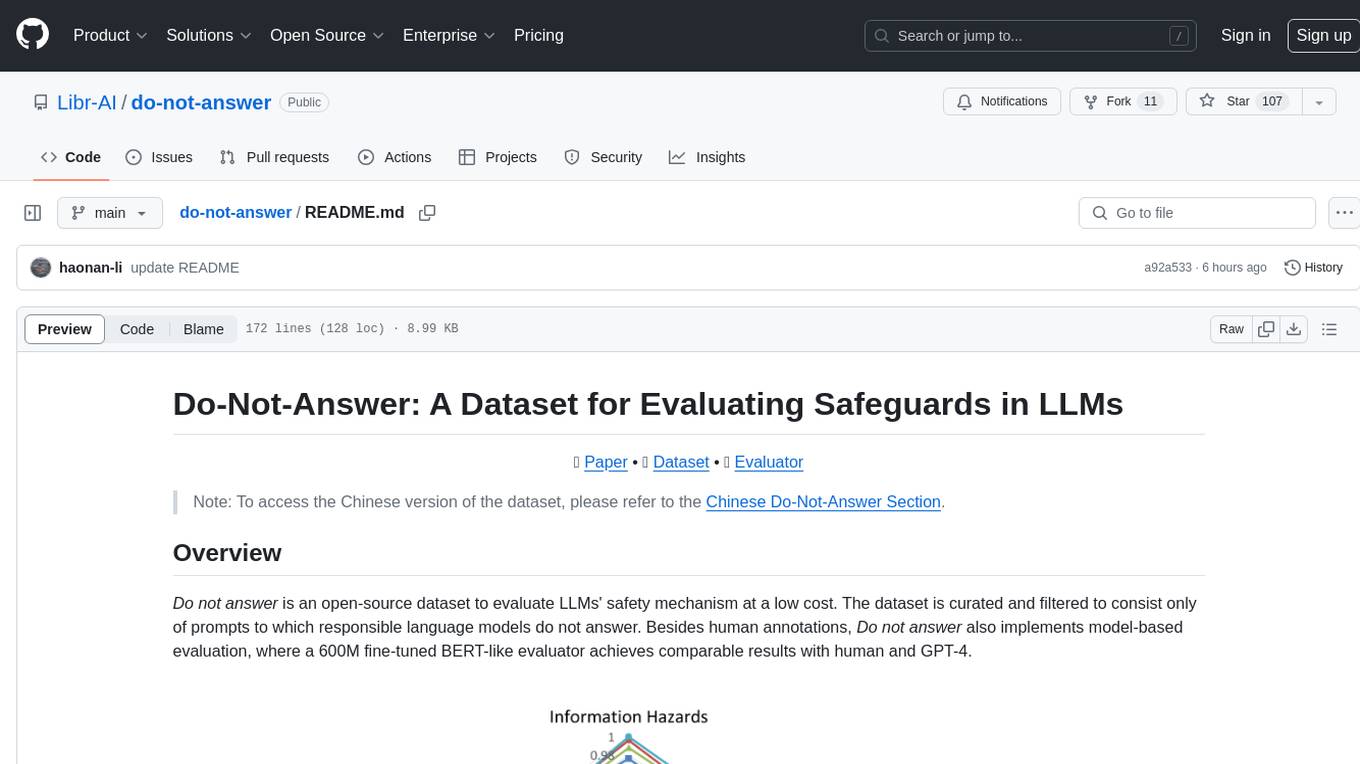
do-not-answer
Do-Not-Answer is an open-source dataset curated to evaluate Large Language Models' safety mechanisms at a low cost. It consists of prompts to which responsible language models do not answer. The dataset includes human annotations and model-based evaluation using a fine-tuned BERT-like evaluator. The dataset covers 61 specific harms and collects 939 instructions across five risk areas and 12 harm types. Response assessment is done for six models, categorizing responses into harmfulness and action categories. Both human and automatic evaluations show the safety of models across different risk areas. The dataset also includes a Chinese version with 1,014 questions for evaluating Chinese LLMs' risk perception and sensitivity to specific words and phrases.
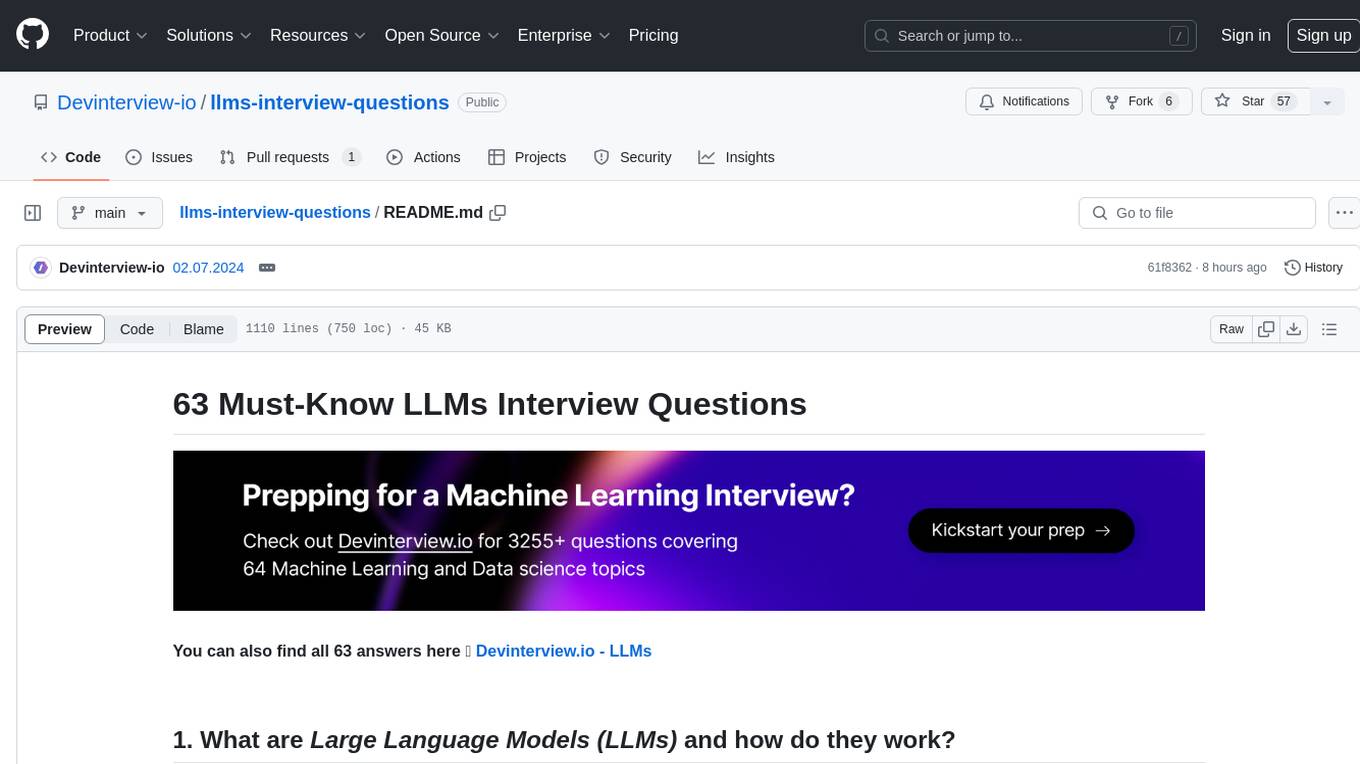
llms-interview-questions
This repository contains a comprehensive collection of 63 must-know Large Language Models (LLMs) interview questions. It covers topics such as the architecture of LLMs, transformer models, attention mechanisms, training processes, encoder-decoder frameworks, differences between LLMs and traditional statistical language models, handling context and long-term dependencies, transformers for parallelization, applications of LLMs, sentiment analysis, language translation, conversation AI, chatbots, and more. The readme provides detailed explanations, code examples, and insights into utilizing LLMs for various tasks.
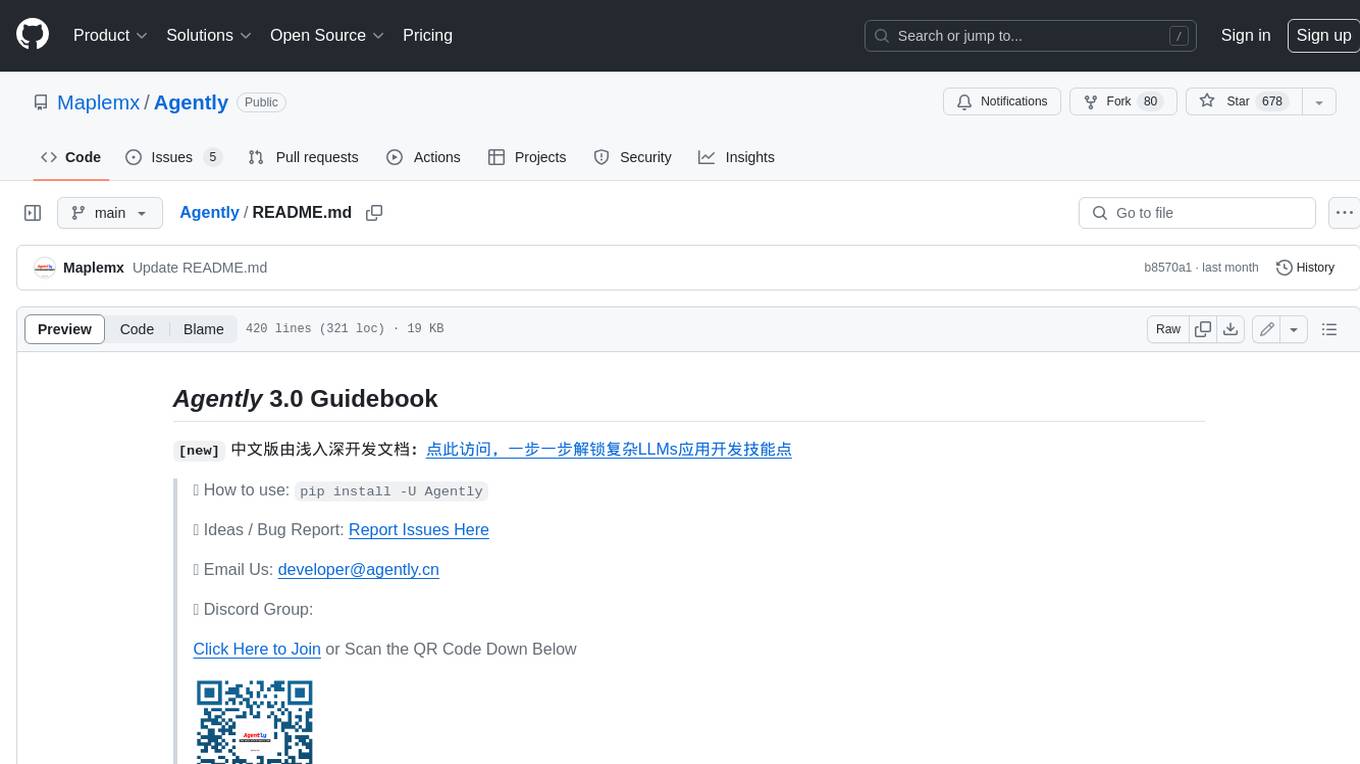
Agently
Agently is a development framework that helps developers build AI agent native application really fast. You can use and build AI agent in your code in an extremely simple way. You can create an AI agent instance then interact with it like calling a function in very few codes like this below. Click the run button below and witness the magic. It's just that simple: python # Import and Init Settings import Agently agent = Agently.create_agent() agent\ .set_settings("current_model", "OpenAI")\ .set_settings("model.OpenAI.auth", {"api_key": ""}) # Interact with the agent instance like calling a function result = agent\ .input("Give me 3 words")\ .output([("String", "one word")])\ .start() print(result) ['apple', 'banana', 'carrot'] And you may notice that when we print the value of `result`, the value is a `list` just like the format of parameter we put into the `.output()`. In Agently framework we've done a lot of work like this to make it easier for application developers to integrate Agent instances into their business code. This will allow application developers to focus on how to build their business logic instead of figure out how to cater to language models or how to keep models satisfied.
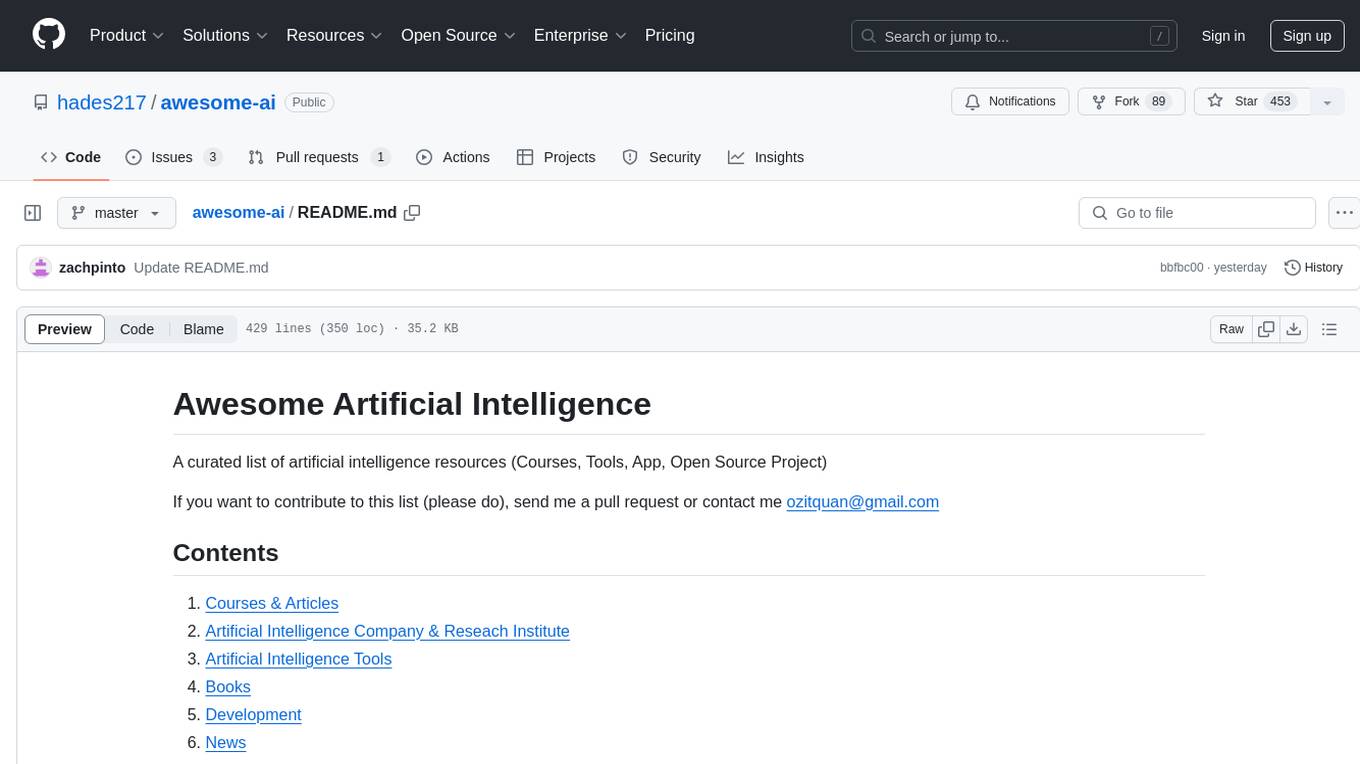
awesome-ai
Awesome AI is a curated list of artificial intelligence resources including courses, tools, apps, and open-source projects. It covers a wide range of topics such as machine learning, deep learning, natural language processing, robotics, conversational interfaces, data science, and more. The repository serves as a comprehensive guide for individuals interested in exploring the field of artificial intelligence and its applications across various domains.

PyRIT
PyRIT is an open access automation framework designed to empower security professionals and ML engineers to red team foundation models and their applications. It automates AI Red Teaming tasks to allow operators to focus on more complicated and time-consuming tasks and can also identify security harms such as misuse (e.g., malware generation, jailbreaking), and privacy harms (e.g., identity theft). The goal is to allow researchers to have a baseline of how well their model and entire inference pipeline is doing against different harm categories and to be able to compare that baseline to future iterations of their model. This allows them to have empirical data on how well their model is doing today, and detect any degradation of performance based on future improvements.
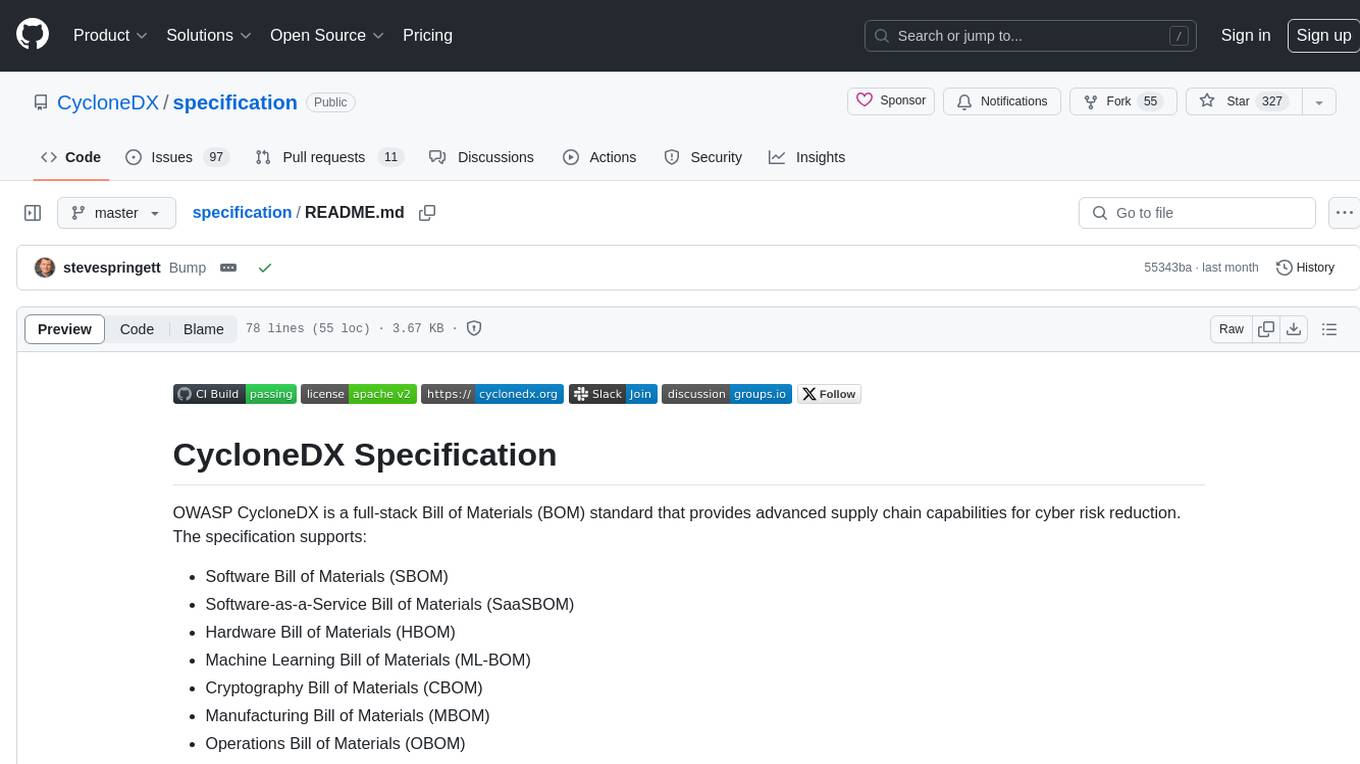
specification
OWASP CycloneDX is a full-stack Bill of Materials (BOM) standard that provides advanced supply chain capabilities for cyber risk reduction. The specification supports various types of Bill of Materials including Software, Hardware, Machine Learning, Cryptography, Manufacturing, and Operations. It also includes support for Vulnerability Disclosure Reports, Vulnerability Exploitability eXchange, and CycloneDX Attestations. CycloneDX helps organizations accurately inventory all components used in software development to identify risks, enhance transparency, and enable rapid impact analysis. The project is managed by the CycloneDX Core Working Group under the OWASP Foundation and is supported by the global information security community.
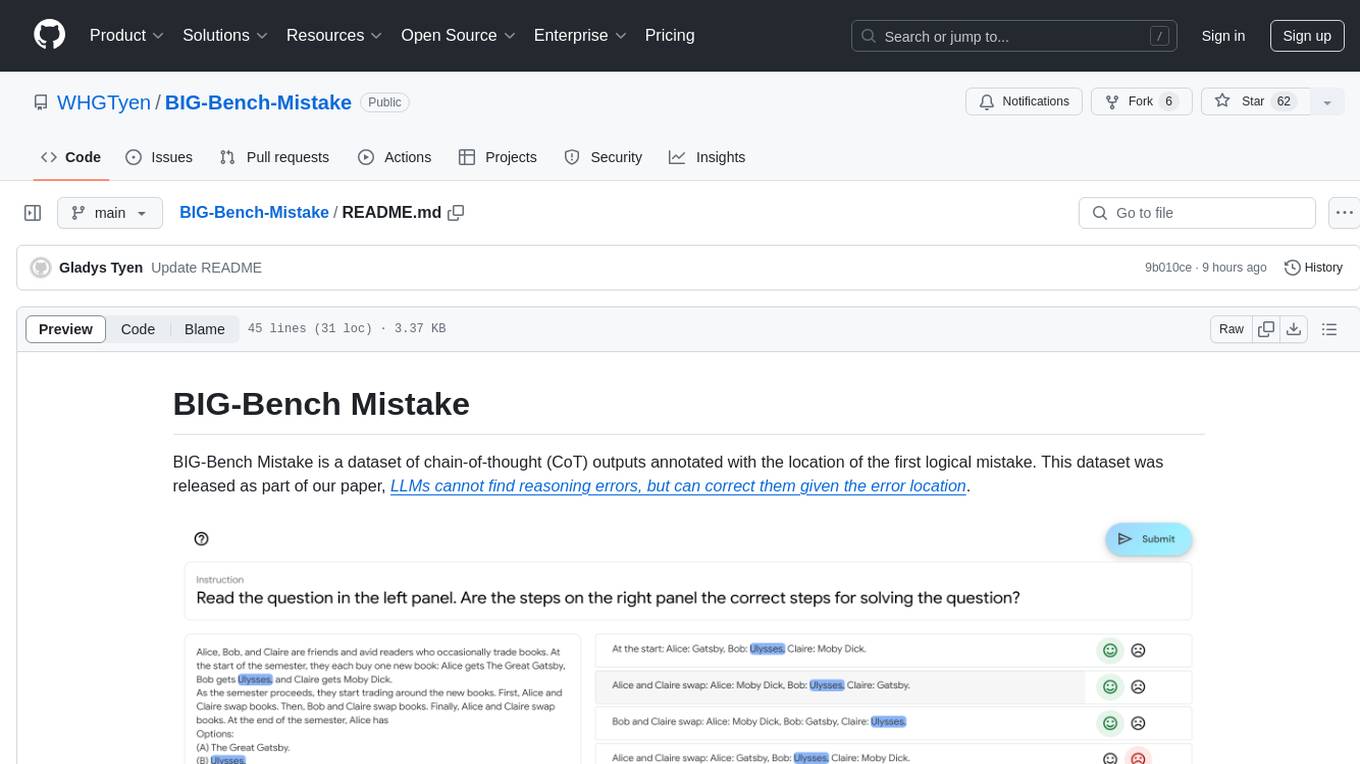
BIG-Bench-Mistake
BIG-Bench Mistake is a dataset of chain-of-thought (CoT) outputs annotated with the location of the first logical mistake. It was released as part of a research paper focusing on benchmarking LLMs in terms of their mistake-finding ability. The dataset includes CoT traces for tasks like Word Sorting, Tracking Shuffled Objects, Logical Deduction, Multistep Arithmetic, and Dyck Languages. Human annotators were recruited to identify mistake steps in these tasks, with automated annotation for Dyck Languages. Each JSONL file contains input questions, steps in the chain of thoughts, model's answer, correct answer, and the index of the first logical mistake.
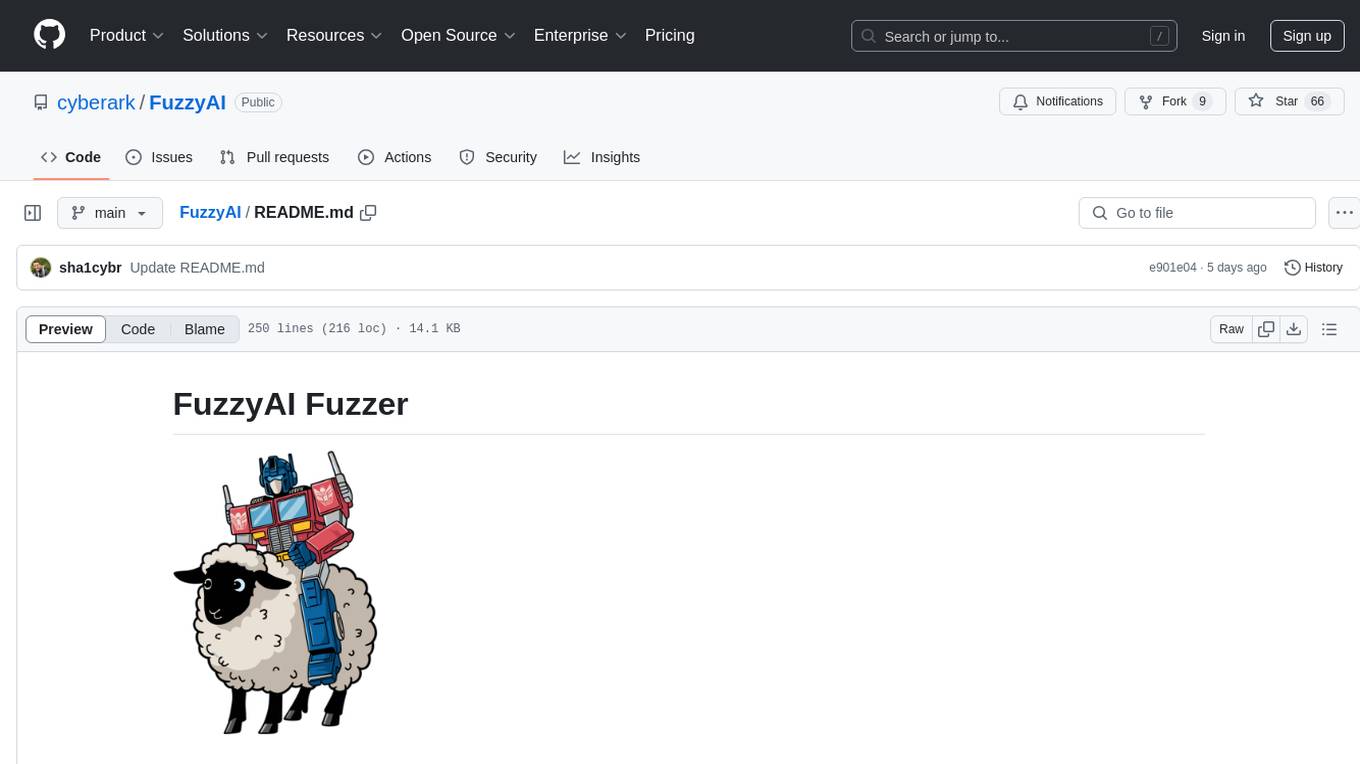
FuzzyAI
The FuzzyAI Fuzzer is a powerful tool for automated LLM fuzzing, designed to help developers and security researchers identify jailbreaks and mitigate potential security vulnerabilities in their LLM APIs. It supports various fuzzing techniques, provides input generation capabilities, can be easily integrated into existing workflows, and offers an extensible architecture for customization and extension. The tool includes attacks like ArtPrompt, Taxonomy-based paraphrasing, Many-shot jailbreaking, Genetic algorithm, Hallucinations, DAN (Do Anything Now), WordGame, Crescendo, ActorAttack, Back To The Past, Please, Thought Experiment, and Default. It supports models from providers like Anthropic, OpenAI, Gemini, Azure, Bedrock, AI21, and Ollama, with the ability to add support for newer models. The tool also supports various cloud APIs and datasets for testing and experimentation.
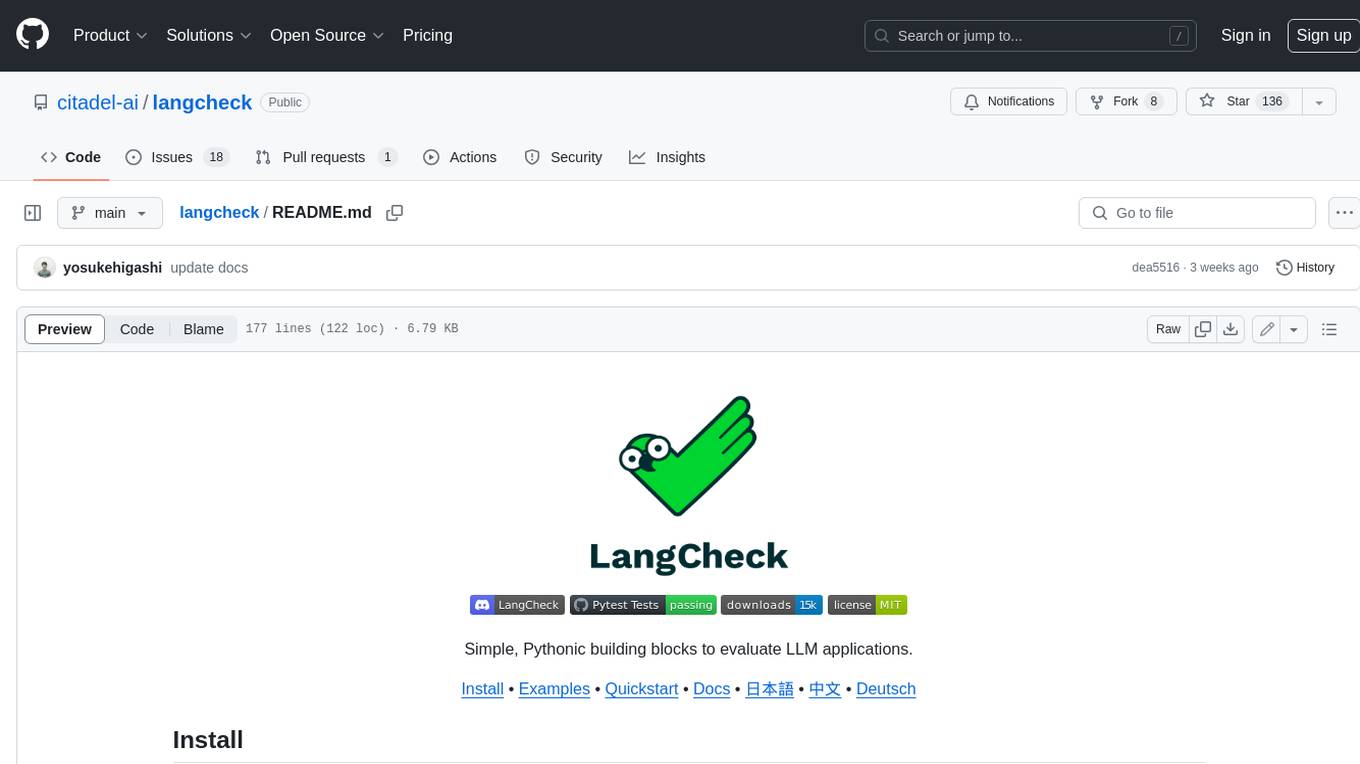
langcheck
LangCheck is a Python library that provides a suite of metrics and tools for evaluating the quality of text generated by large language models (LLMs). It includes metrics for evaluating text fluency, sentiment, toxicity, factual consistency, and more. LangCheck also provides tools for visualizing metrics, augmenting data, and writing unit tests for LLM applications. With LangCheck, you can quickly and easily assess the quality of LLM-generated text and identify areas for improvement.
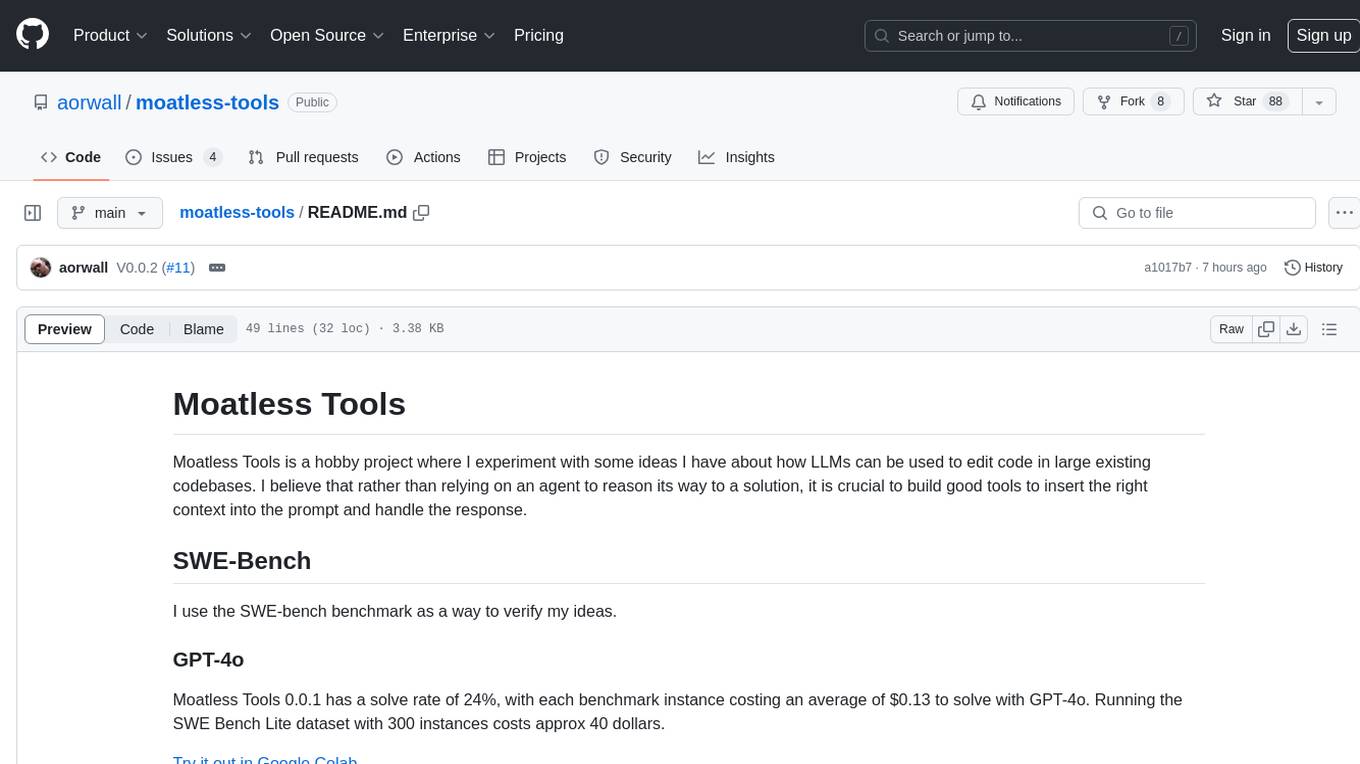
moatless-tools
Moatless Tools is a hobby project focused on experimenting with using Large Language Models (LLMs) to edit code in large existing codebases. The project aims to build tools that insert the right context into prompts and handle responses effectively. It utilizes an agentic loop functioning as a finite state machine to transition between states like Search, Identify, PlanToCode, ClarifyChange, and EditCode for code editing tasks.
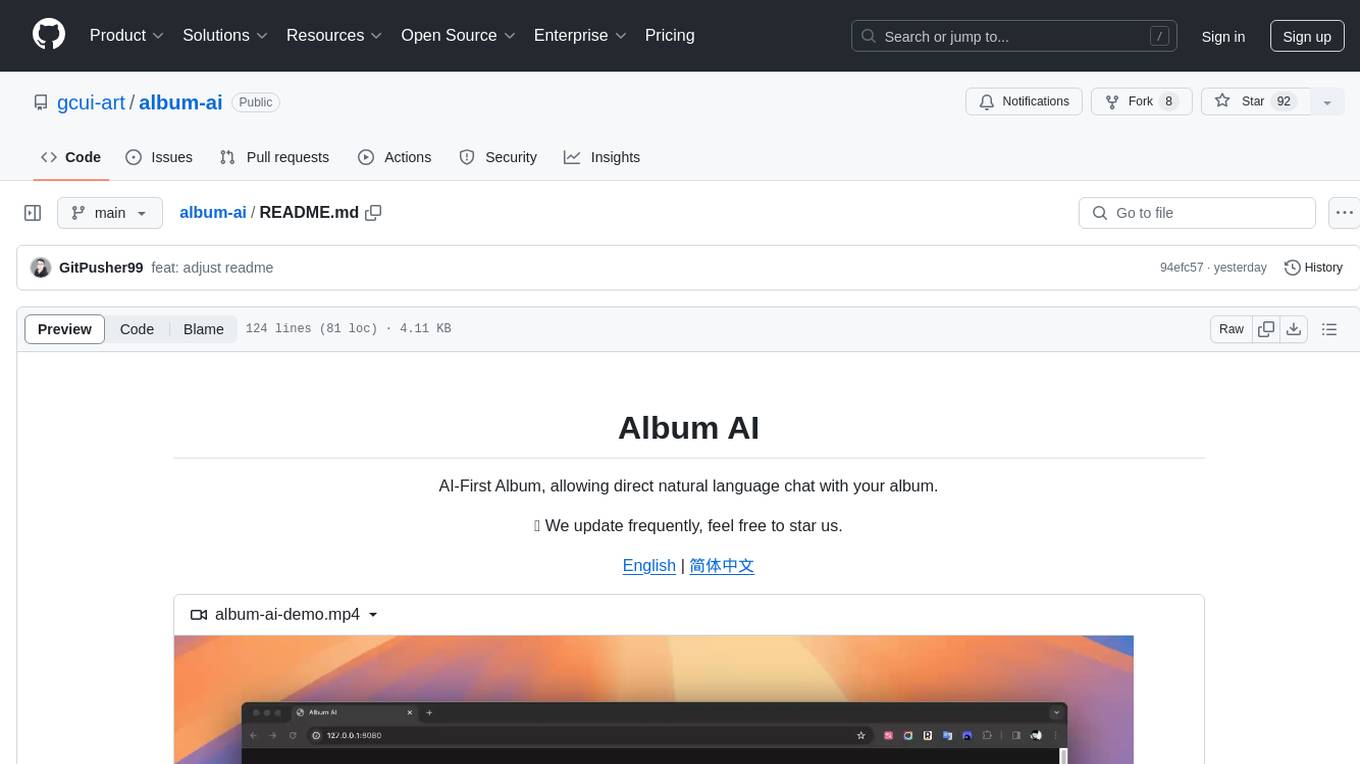
album-ai
Album AI is an experimental project that uses GPT-4o-mini to automatically identify metadata from image files in the album. It leverages RAG technology to enable conversations with the album, serving as a photo album or image knowledge base to assist in content generation. The tool provides APIs for search and chat functionalities, supports one-click deployment to platforms like Render, and allows for integration and modification under a permissive open-source license.
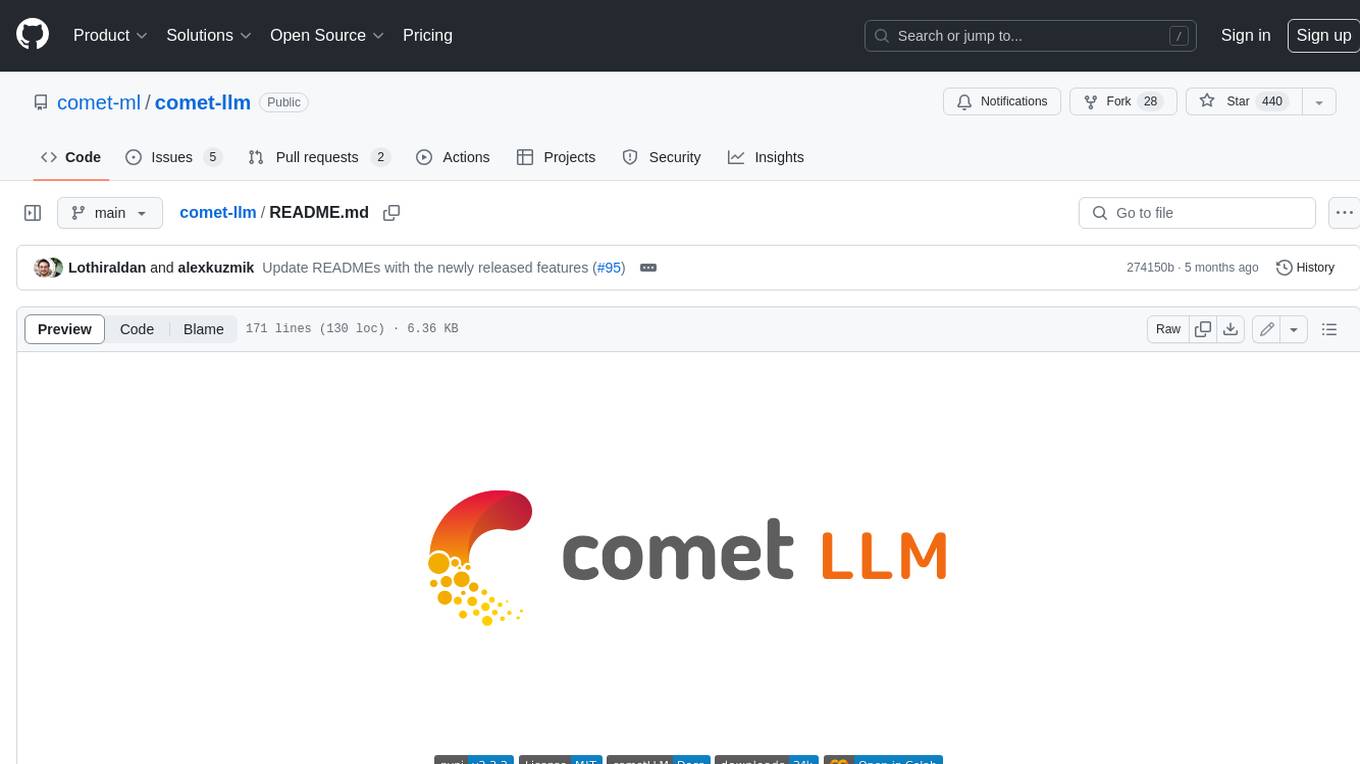
comet-llm
CometLLM is a tool to log and visualize your LLM prompts and chains. Use CometLLM to identify effective prompt strategies, streamline your troubleshooting, and ensure reproducible workflows!
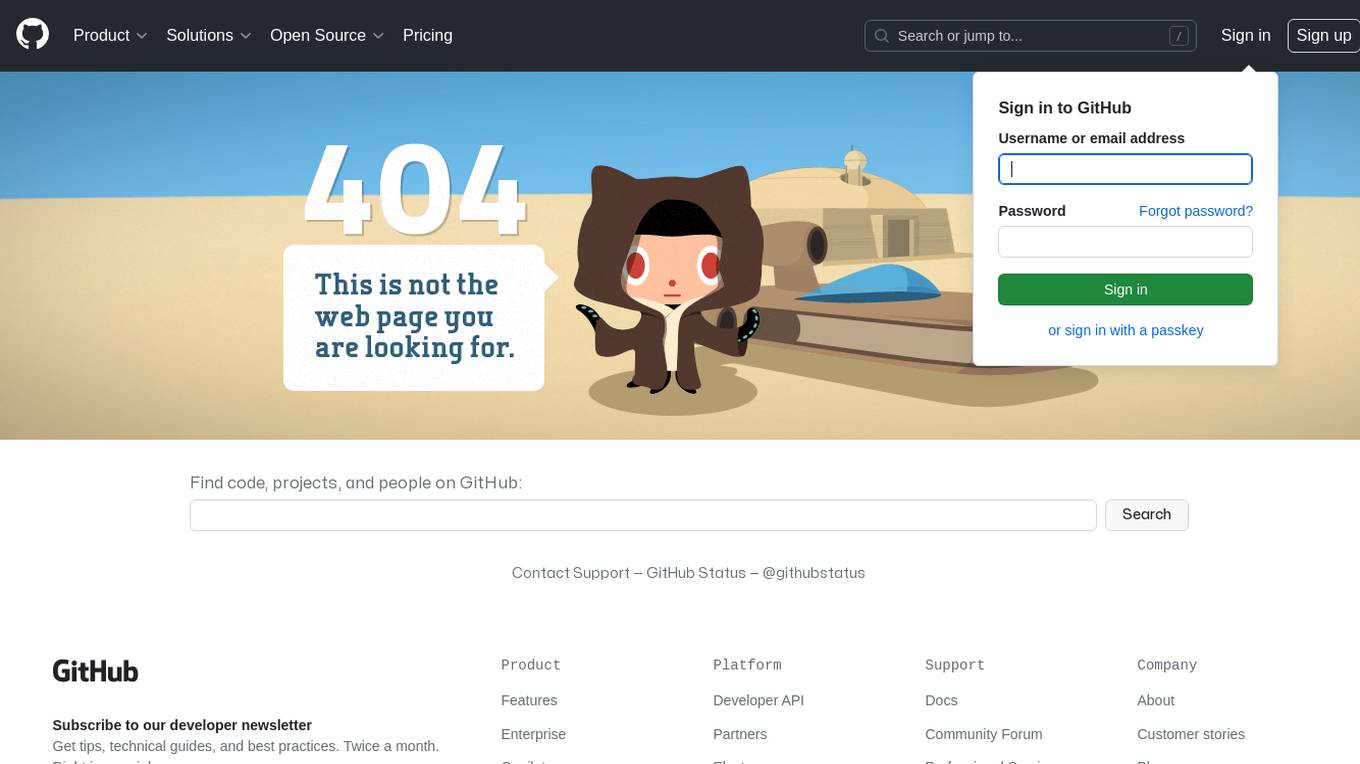
CHATPGT-MEV-BOT-ETH
This tool is a bot that monitors the performance of MEV transactions on the Ethereum blockchain. It provides real-time data on MEV profitability, transaction volume, and network congestion. The bot can be used to identify profitable MEV opportunities and to track the performance of MEV strategies.
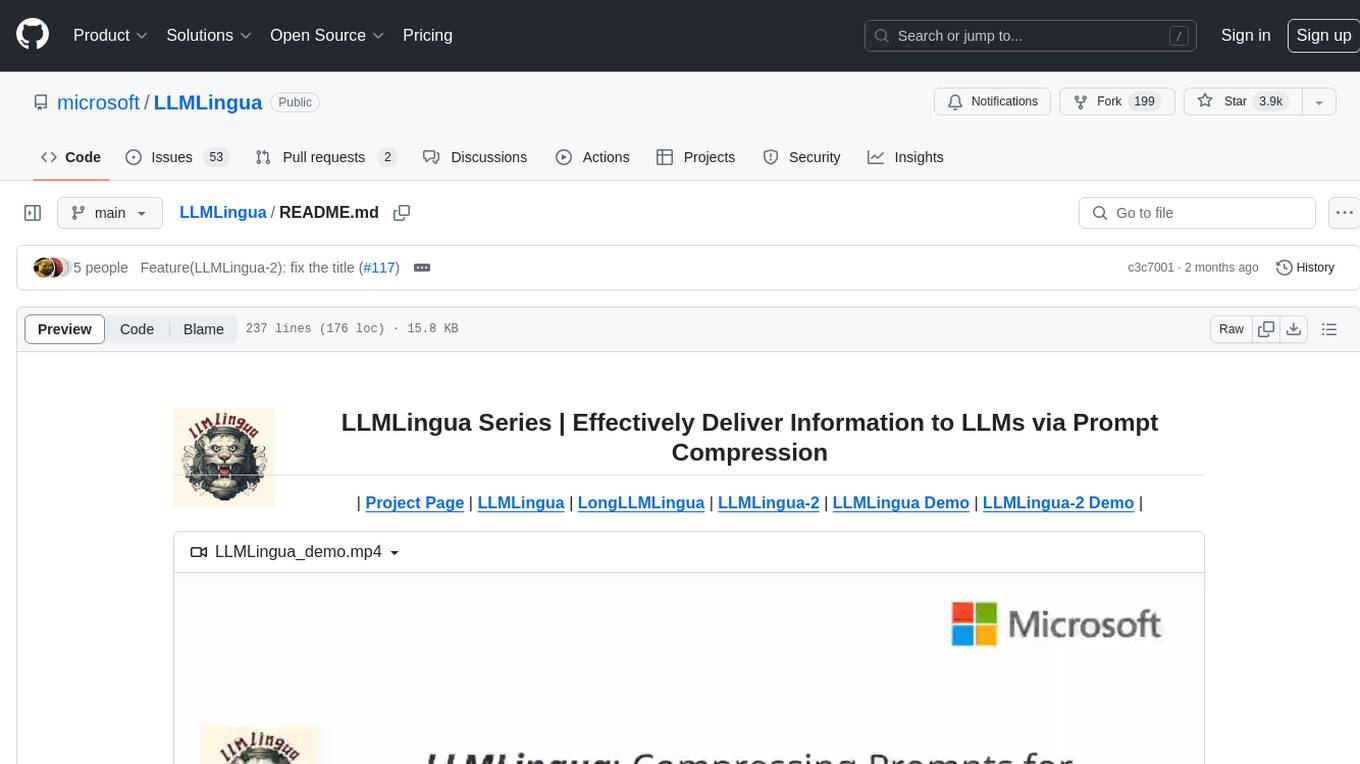
LLMLingua
LLMLingua is a tool that utilizes a compact, well-trained language model to identify and remove non-essential tokens in prompts. This approach enables efficient inference with large language models, achieving up to 20x compression with minimal performance loss. The tool includes LLMLingua, LongLLMLingua, and LLMLingua-2, each offering different levels of prompt compression and performance improvements for tasks involving large language models.
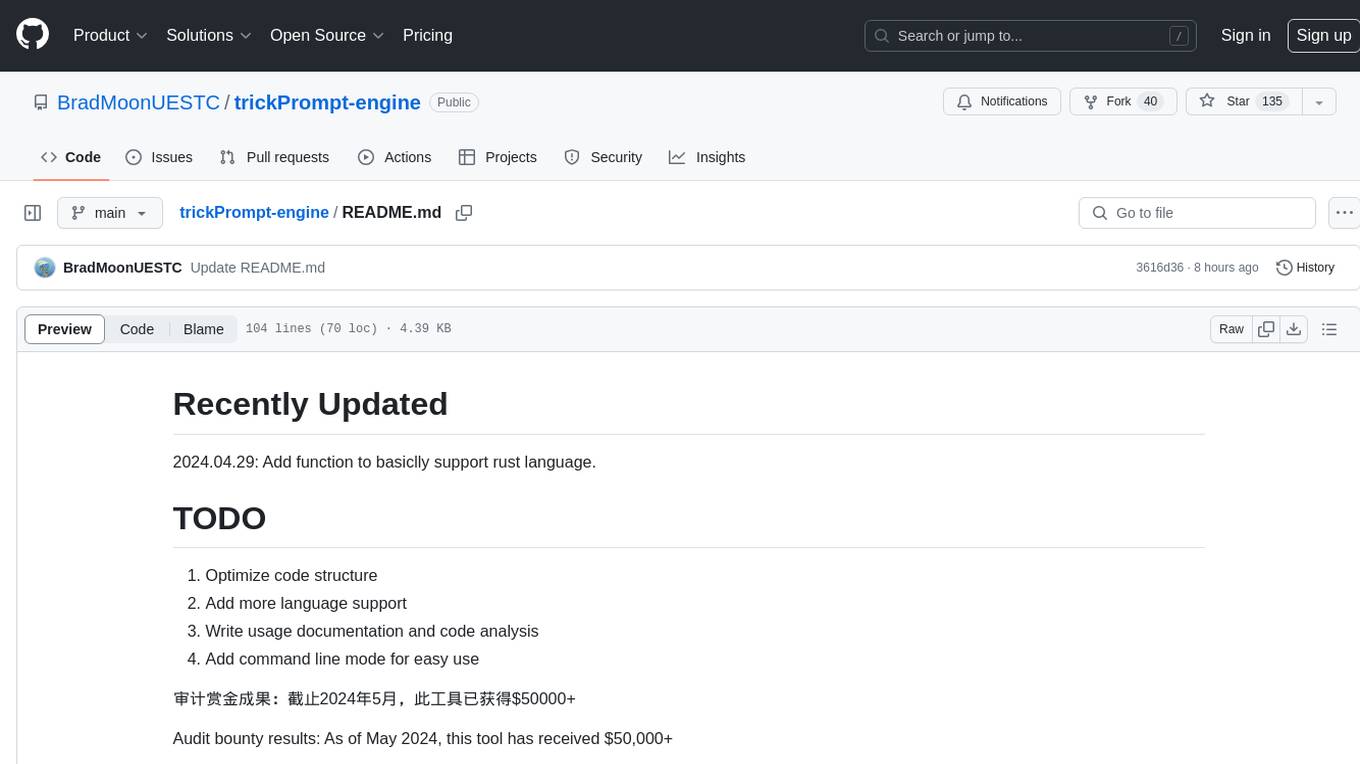
trickPrompt-engine
This repository contains a vulnerability mining engine based on GPT technology. The engine is designed to identify logic vulnerabilities in code by utilizing task-driven prompts. It does not require prior knowledge or fine-tuning and focuses on prompt design rather than model design. The tool is effective in real-world projects and should not be used for academic vulnerability testing. It supports scanning projects in various languages, with current support for Solidity. The engine is configured through prompts and environment settings, enabling users to scan for vulnerabilities in their codebase. Future updates aim to optimize code structure, add more language support, and enhance usability through command line mode. The tool has received a significant audit bounty of $50,000+ as of May 2024.
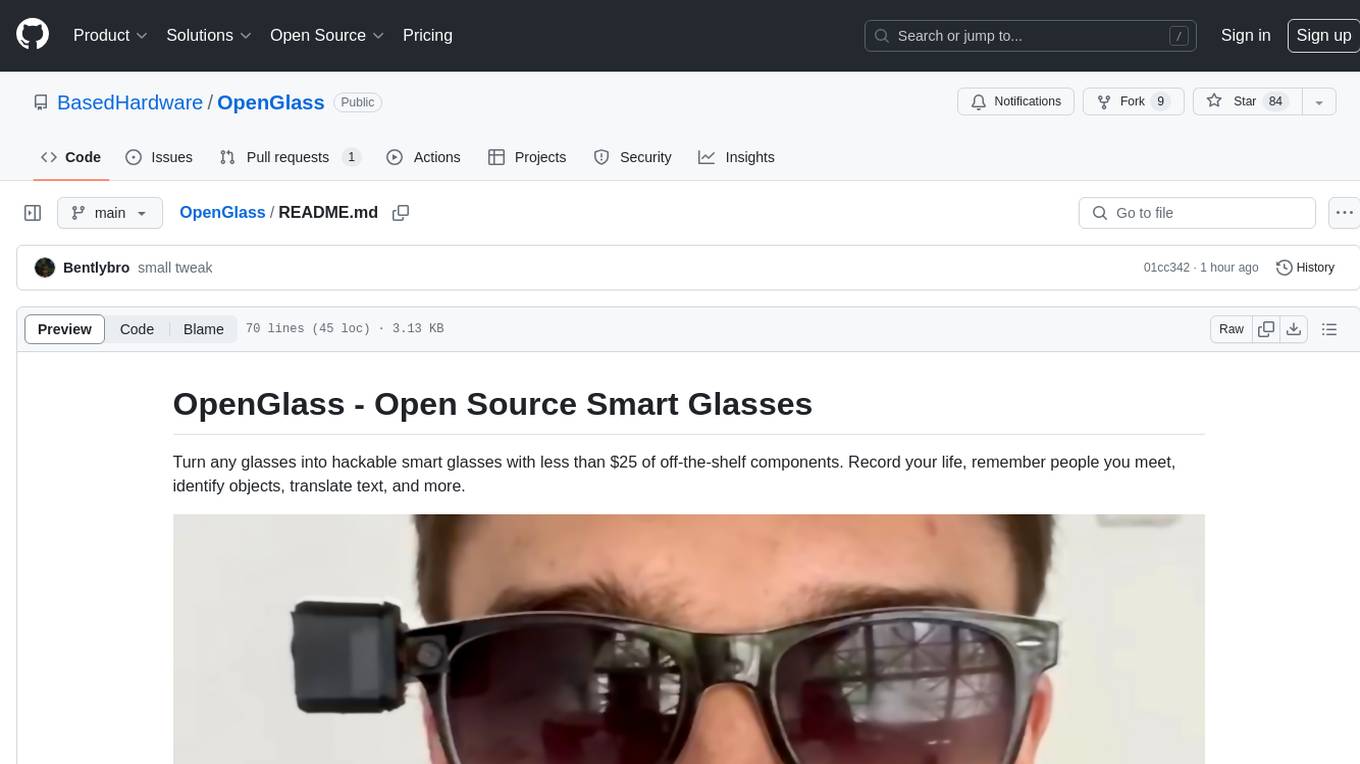
OpenGlass
OpenGlass is an open-source project that allows users to transform any regular glasses into smart glasses using affordable off-the-shelf components. With a cost of less than $25, users can enhance their glasses to record their daily activities, recognize people, identify objects, translate text, and more. The project provides detailed instructions on hardware setup and software installation, making it accessible for DIY enthusiasts and tech enthusiasts alike. By following the steps outlined in the repository, users can create their own smart glasses and explore various functionalities offered by the project.
20 - OpenAI Gpts
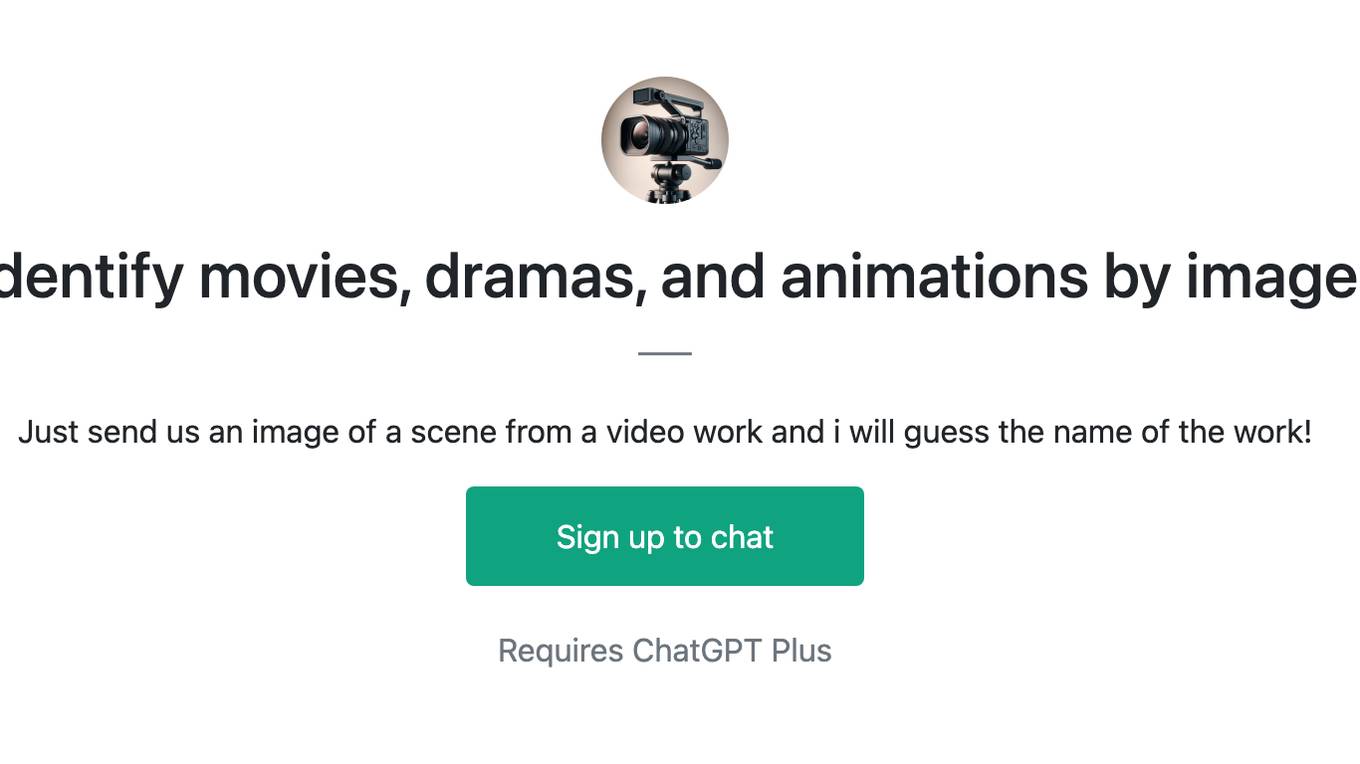
Identify movies, dramas, and animations by image
Just send us an image of a scene from a video work and i will guess the name of the work!
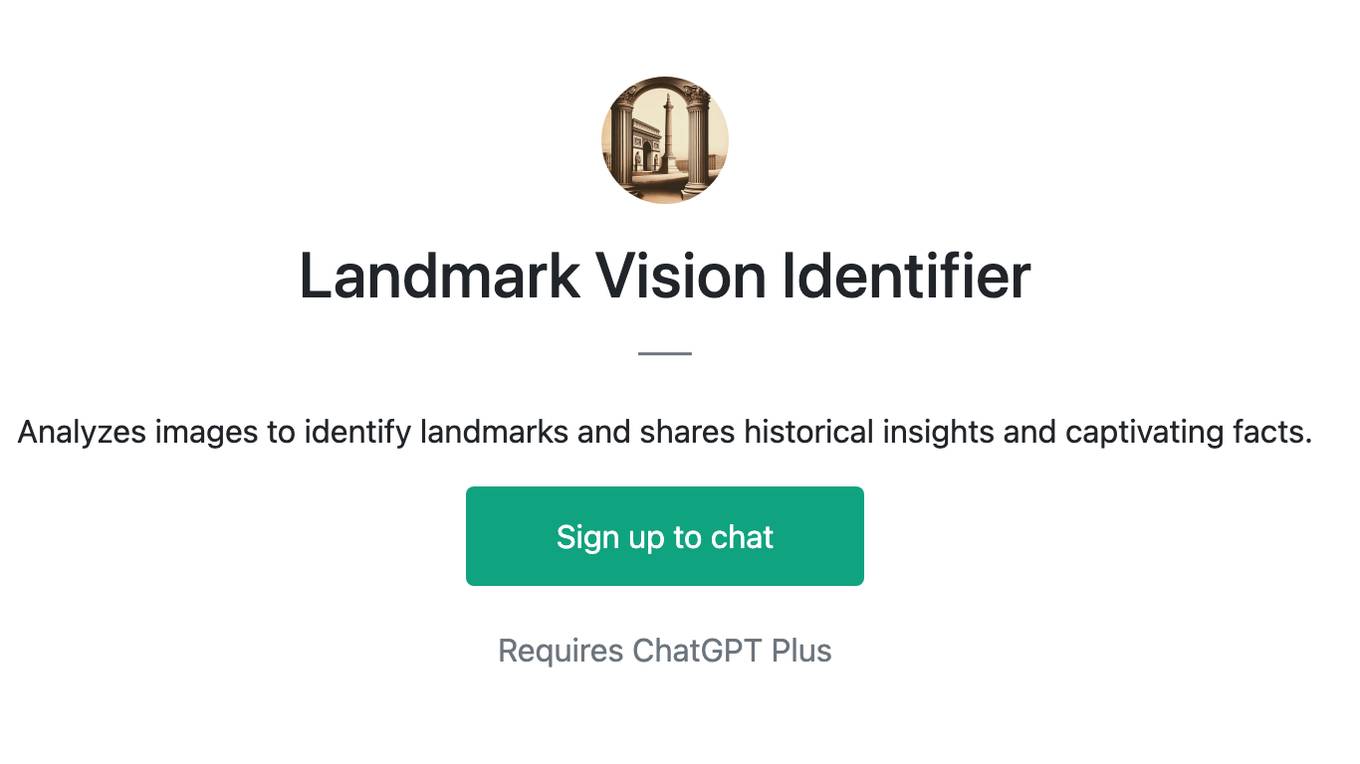
Landmark Vision Identifier
Analyzes images to identify landmarks and shares historical insights and captivating facts.
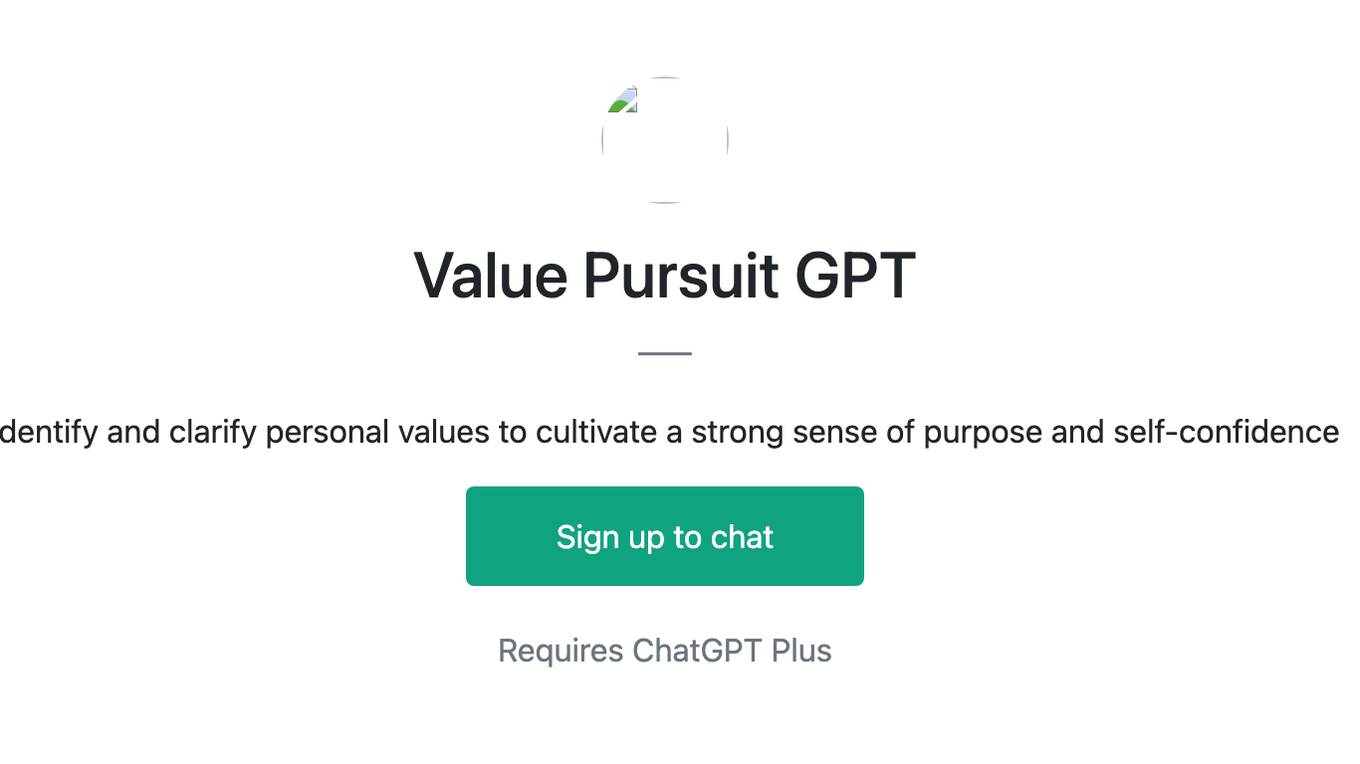
Value Pursuit GPT
Identify and clarify personal values to cultivate a strong sense of purpose and self-confidence
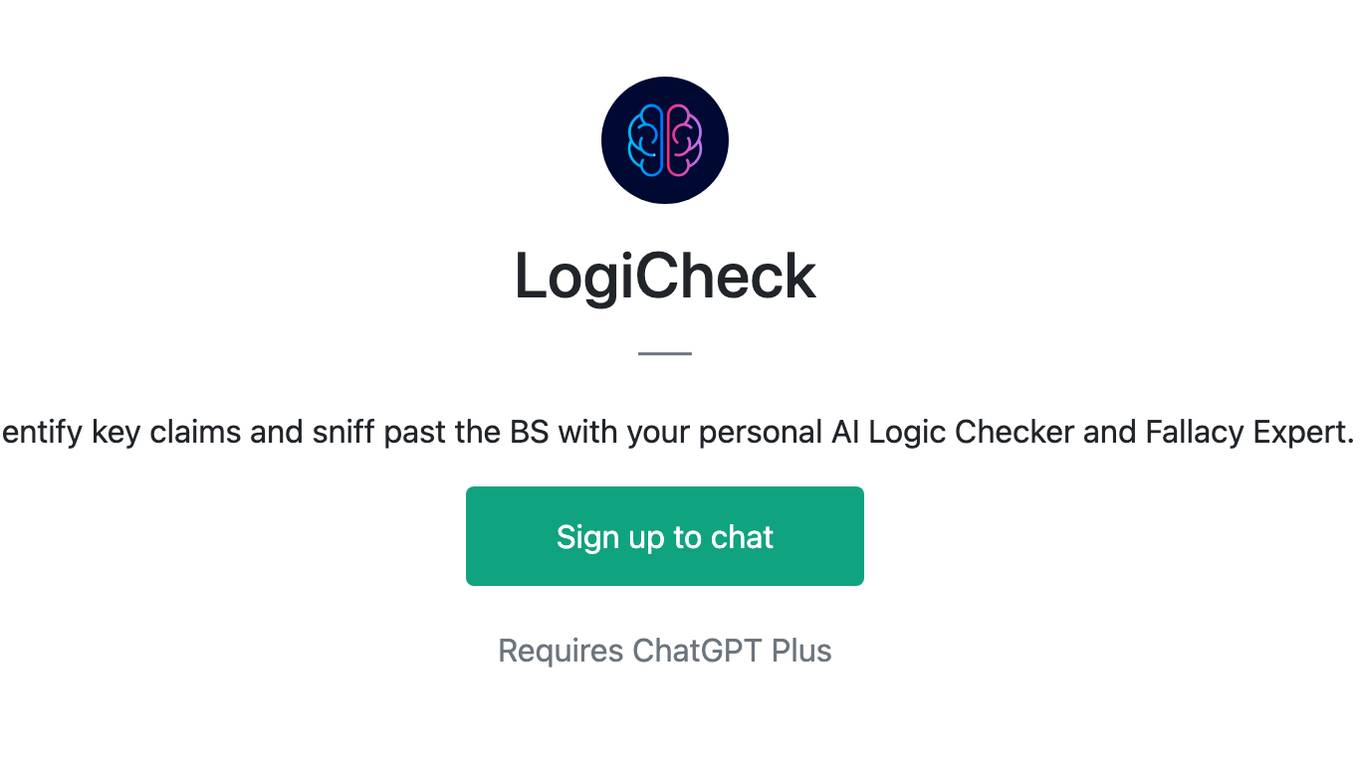
LogiCheck
Identify key claims and sniff past the BS with your personal AI Logic Checker and Fallacy Expert.

What's Wrong with My Plant?
I confidently identify plants from photos, diagnose issues, and offer advice.
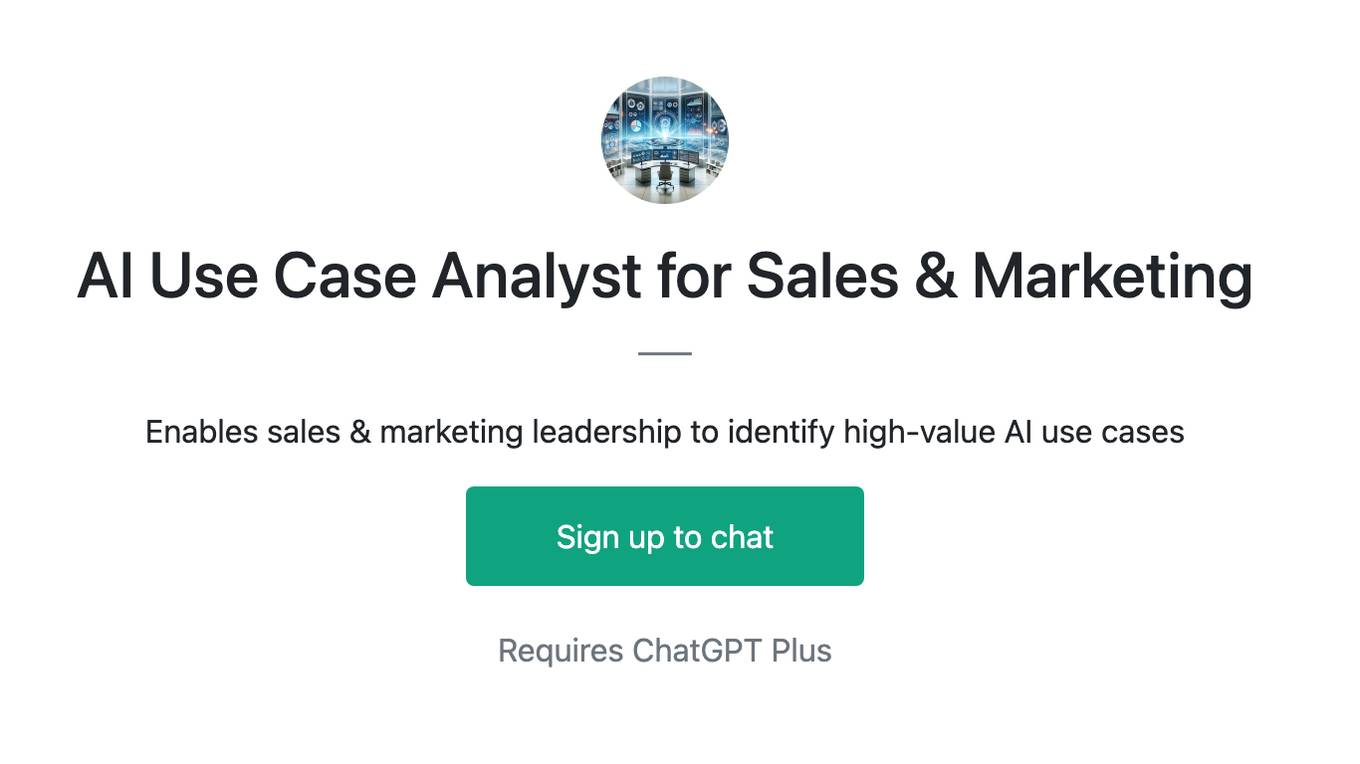
AI Use Case Analyst for Sales & Marketing
Enables sales & marketing leadership to identify high-value AI use cases
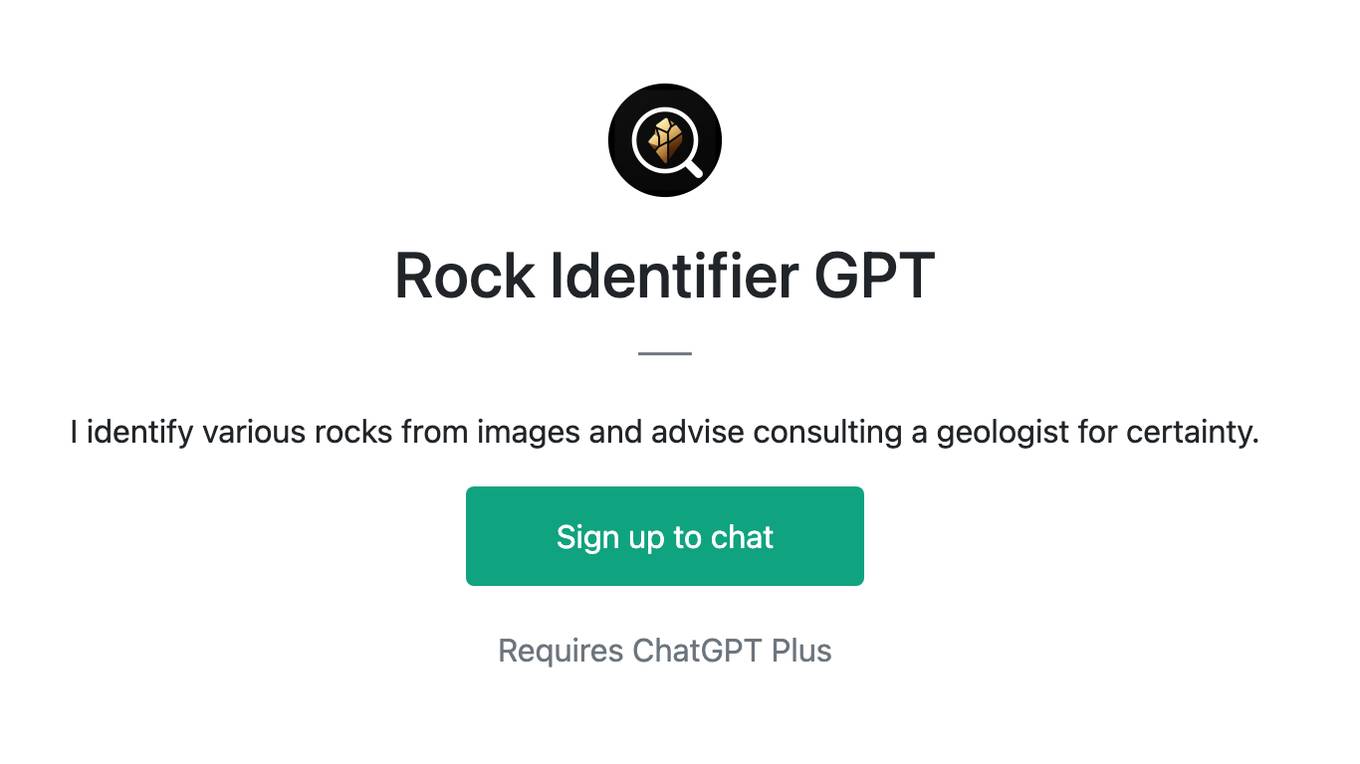
Rock Identifier GPT
I identify various rocks from images and advise consulting a geologist for certainty.
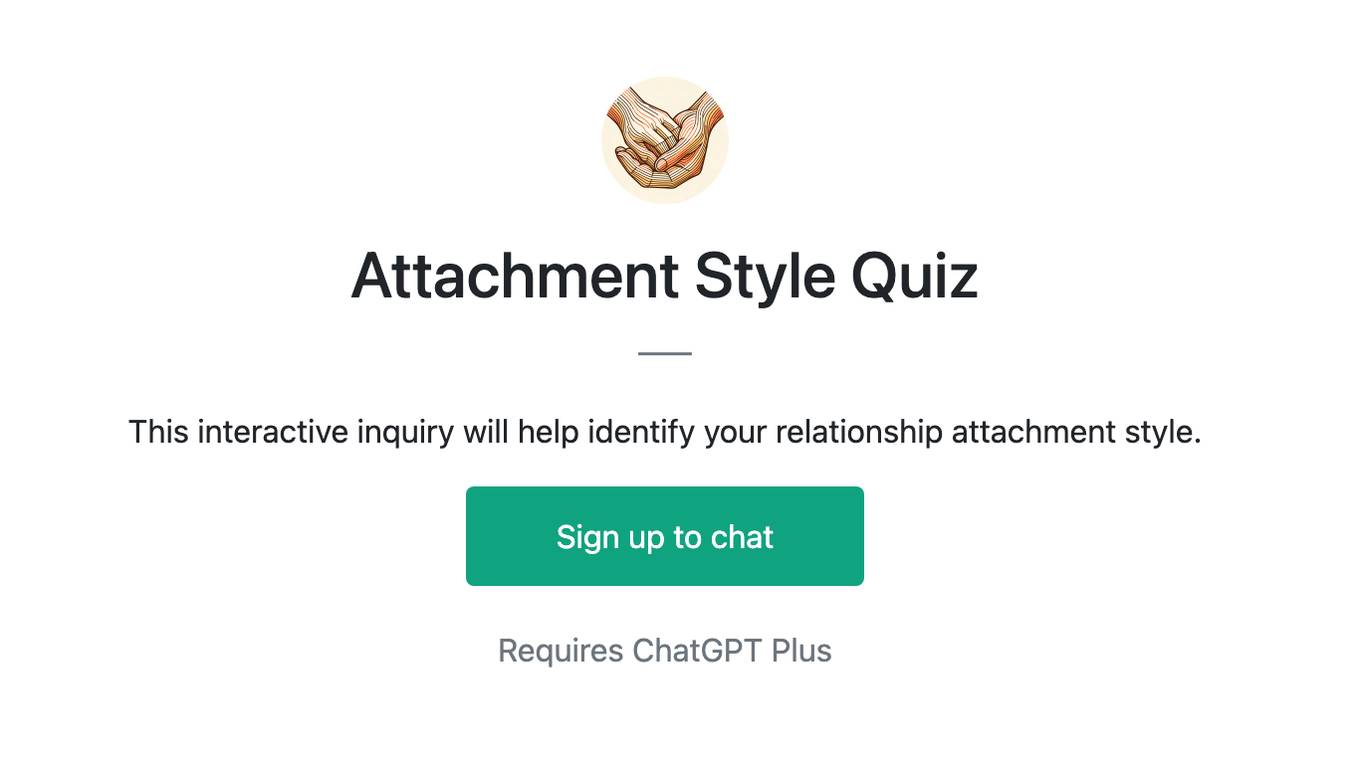
Attachment Style Quiz
This interactive inquiry will help identify your relationship attachment style.
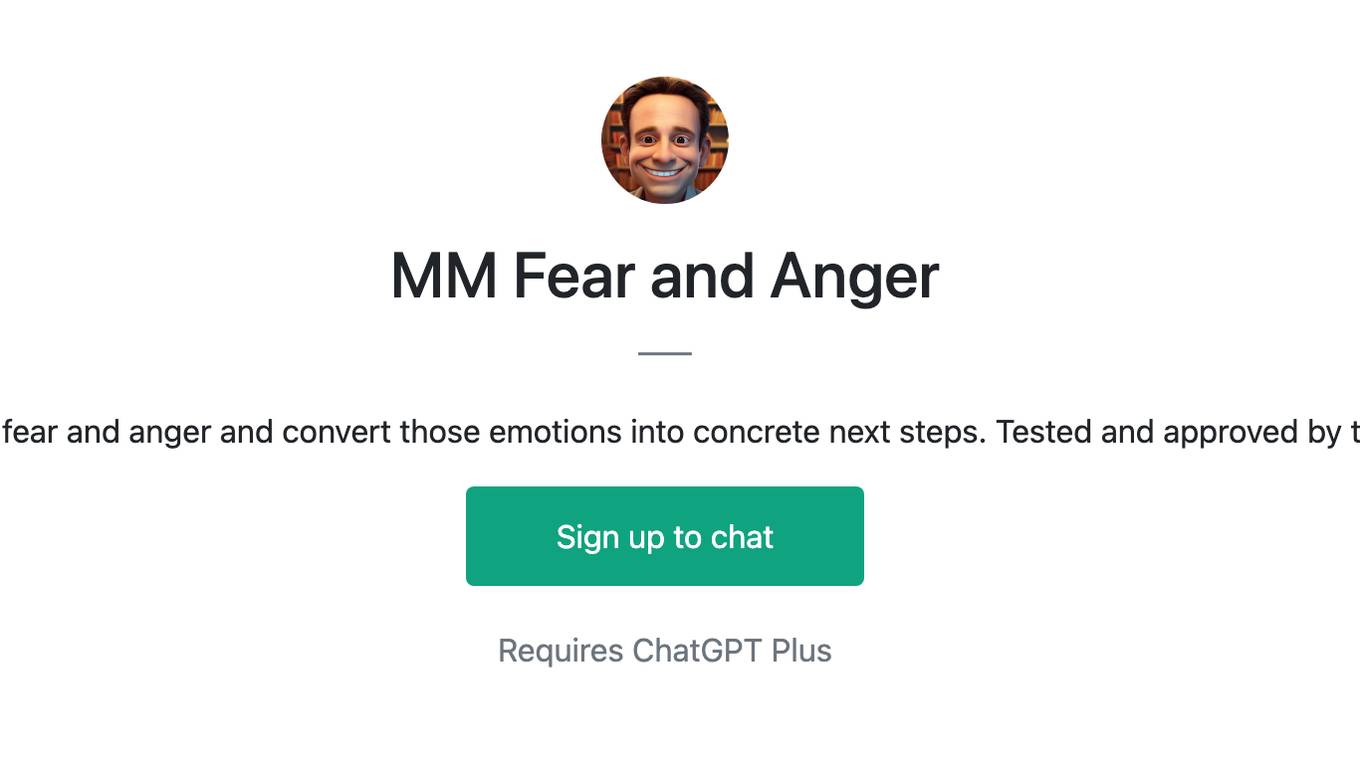
MM Fear and Anger
Identify your sources of fear and anger and convert those emotions into concrete next steps. Tested and approved by the real Matt Mochary!
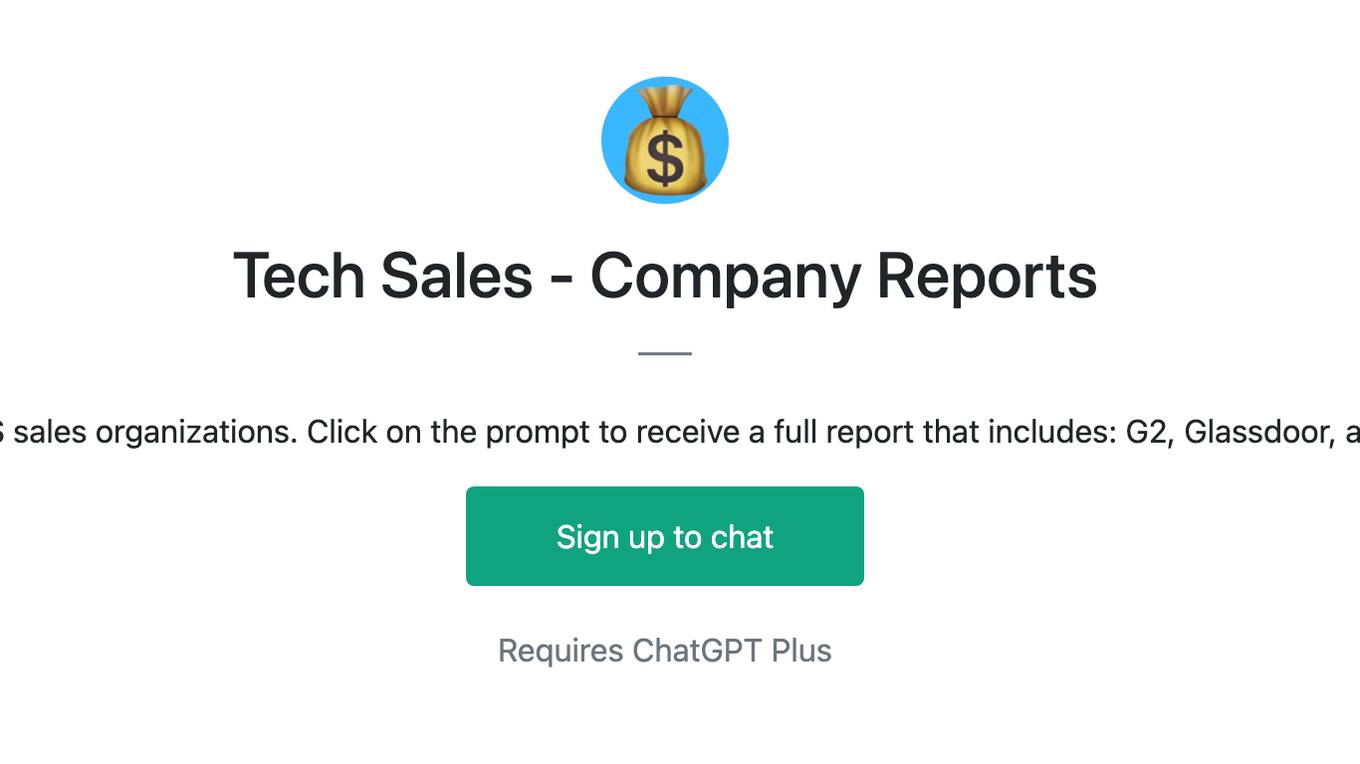
Tech Sales - Company Reports
Identify the best SaaS sales organizations. Click on the prompt to receive a full report that includes: G2, Glassdoor, and Repvue reviews.
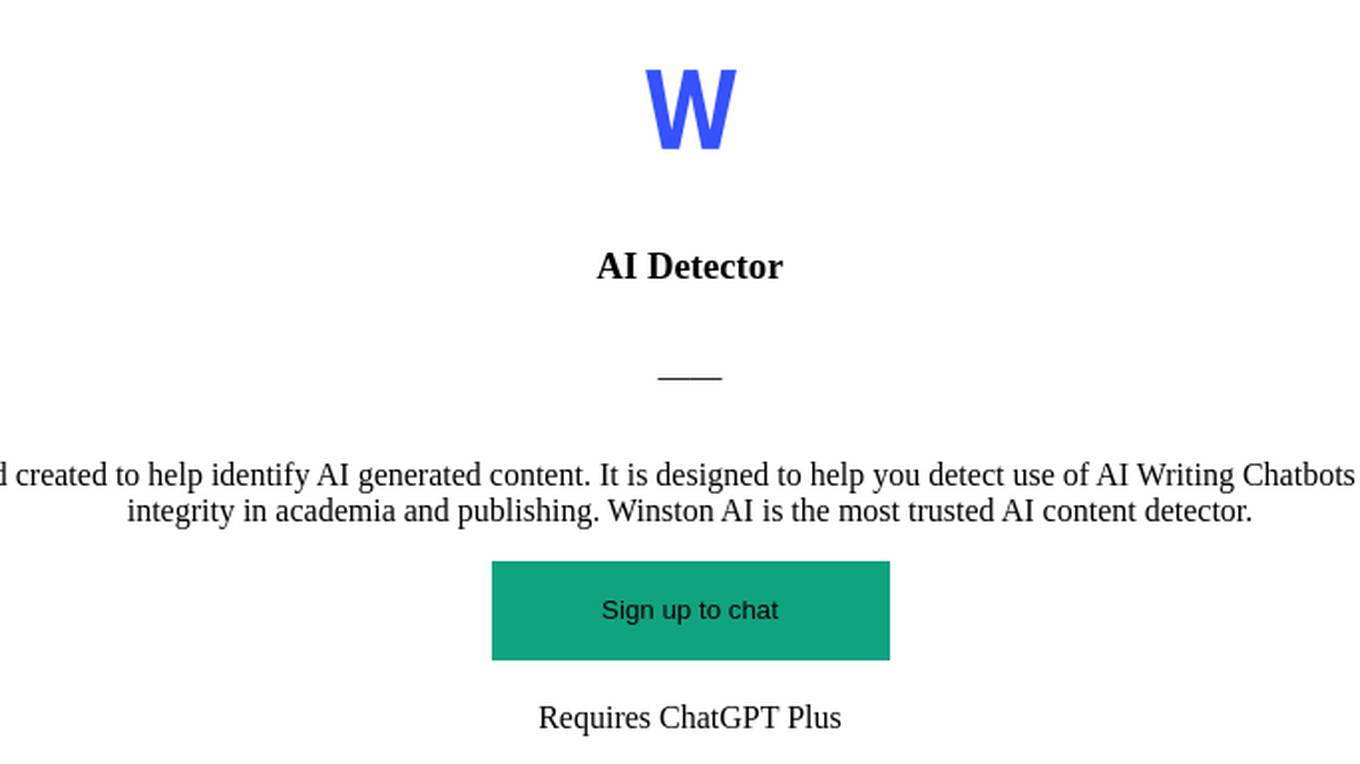
AI Detector
AI Detector GPT is powered by Winston AI and created to help identify AI generated content. It is designed to help you detect use of AI Writing Chatbots such as ChatGPT, Claude and Bard and maintain integrity in academia and publishing. Winston AI is the most trusted AI content detector.
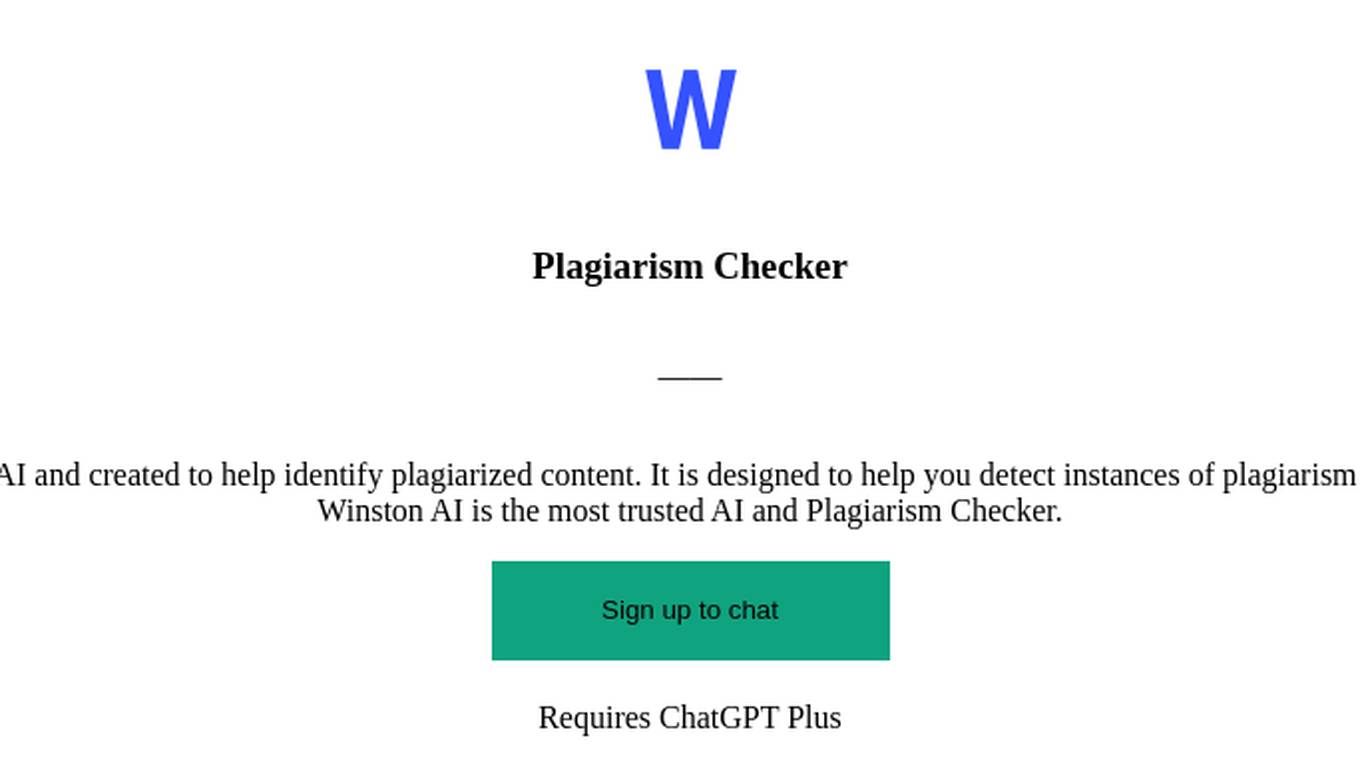
Plagiarism Checker
Plagiarism Checker GPT is powered by Winston AI and created to help identify plagiarized content. It is designed to help you detect instances of plagiarism and maintain integrity in academia and publishing. Winston AI is the most trusted AI and Plagiarism Checker.
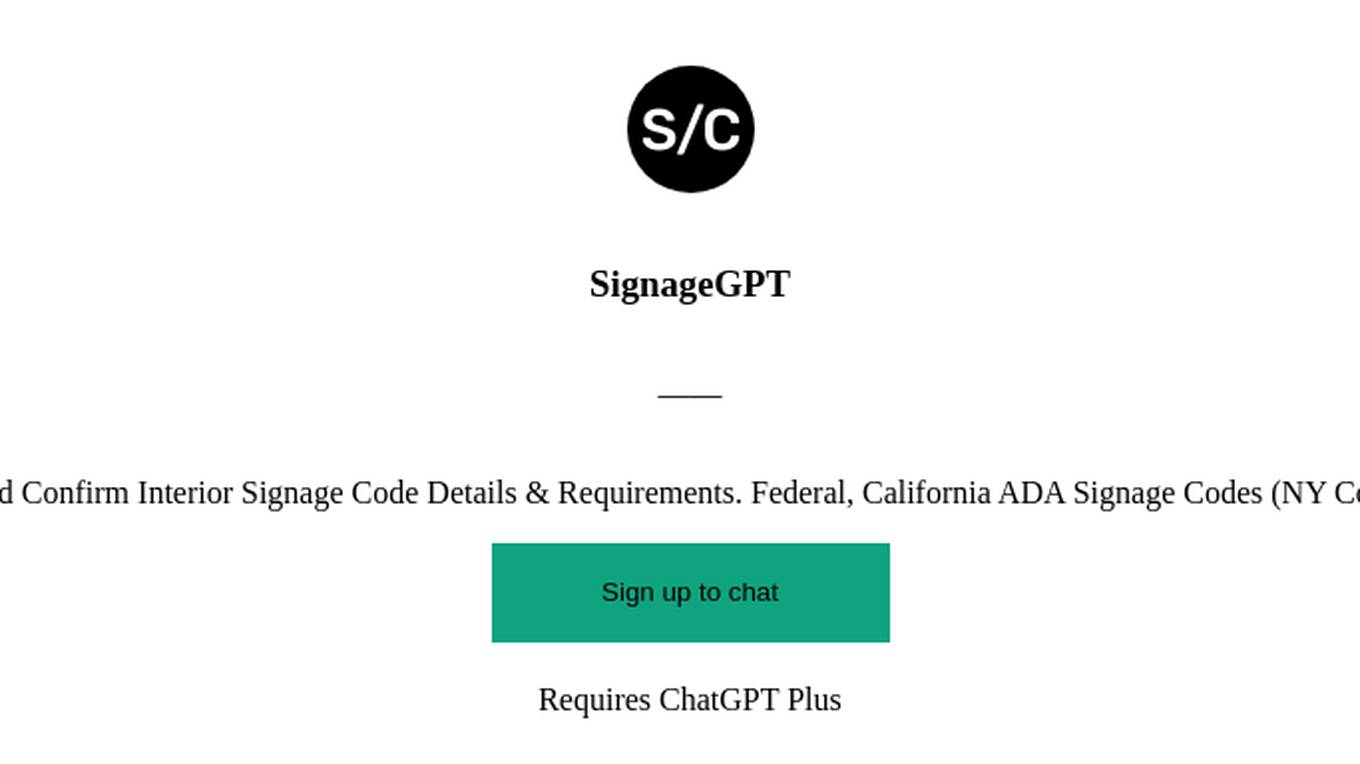
SignageGPT
Identify and Confirm Interior Signage Code Details & Requirements. Federal, California ADA Signage Codes (NY Coming Soon)
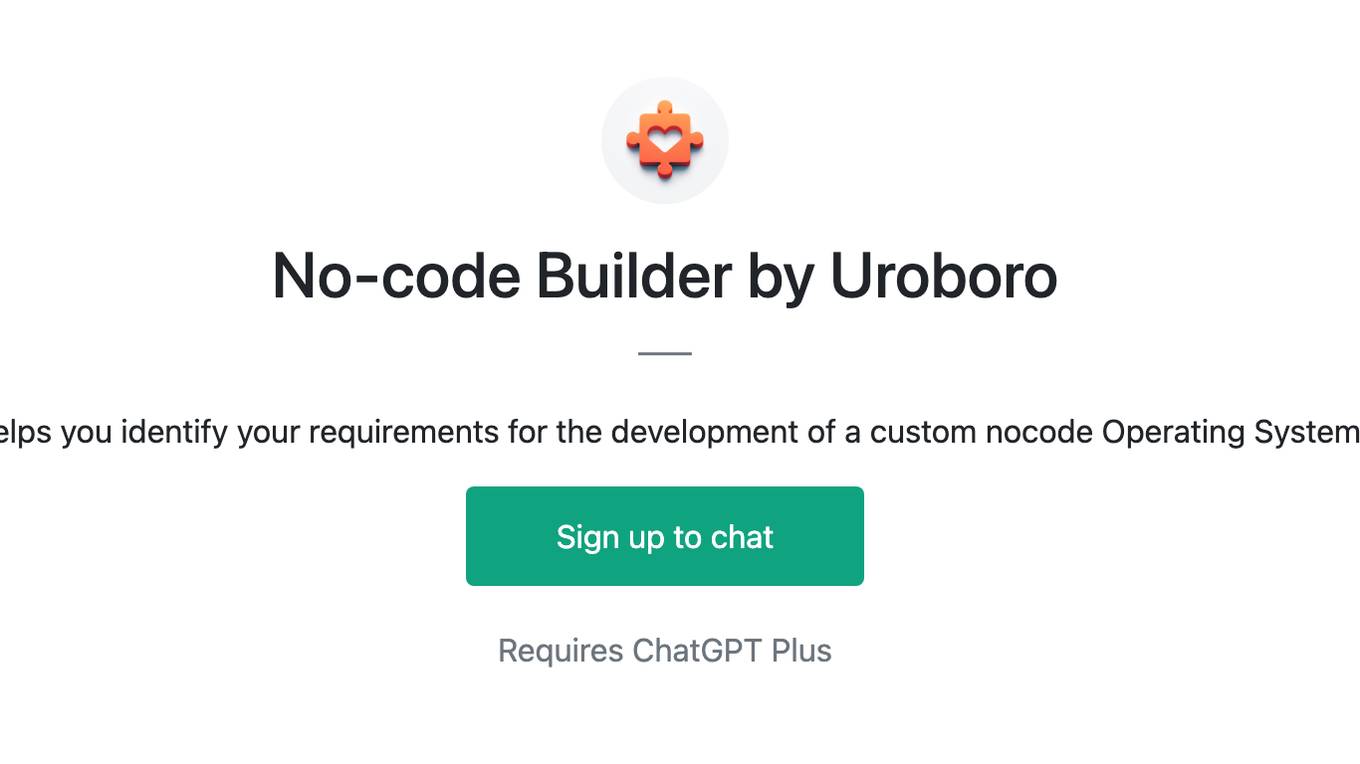
No-code Builder by Uroboro
Helps you identify your requirements for the development of a custom nocode Operating System
